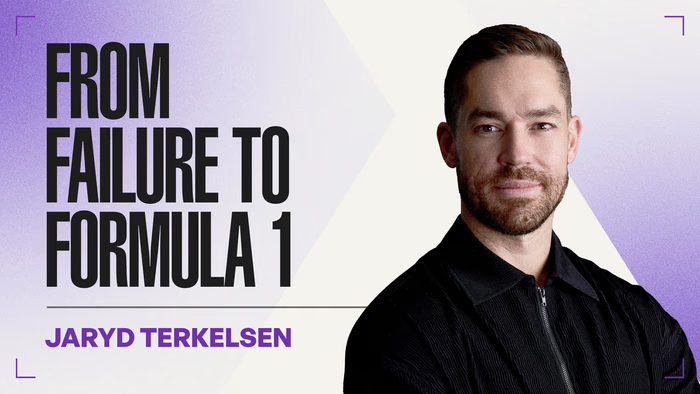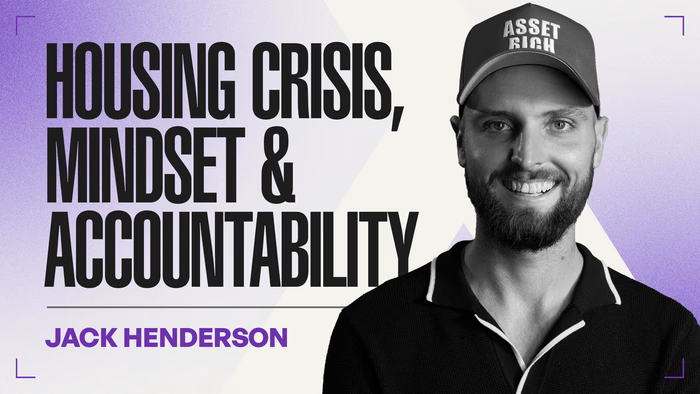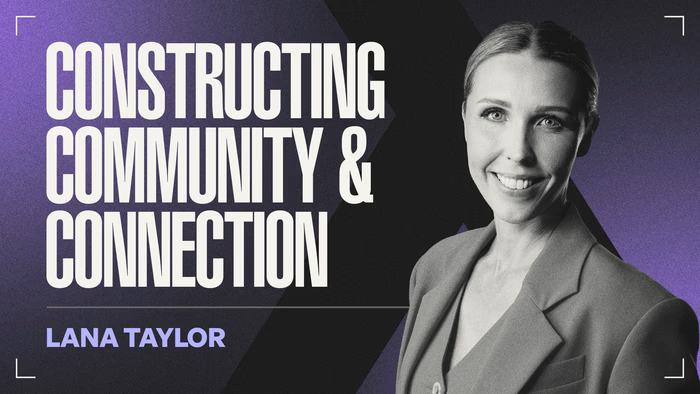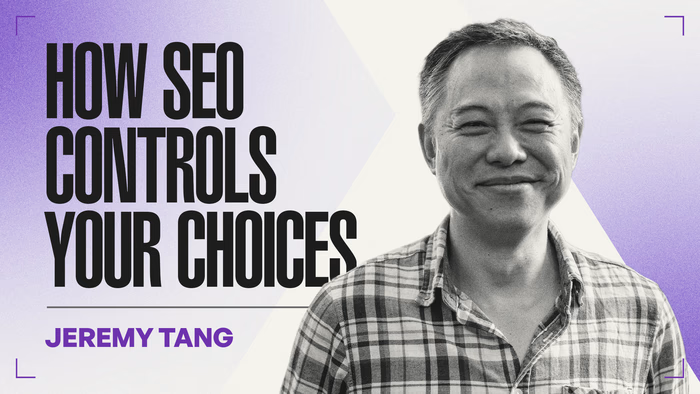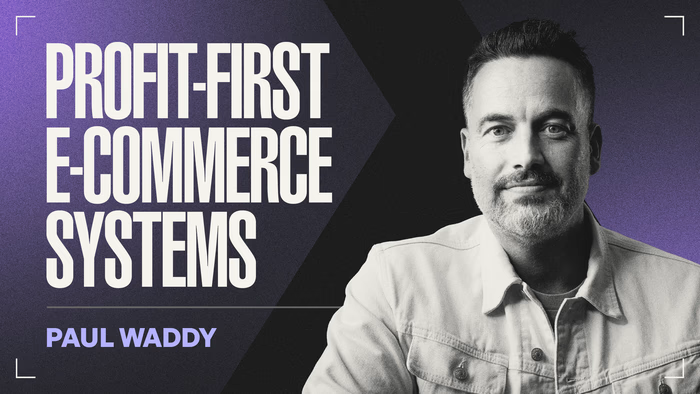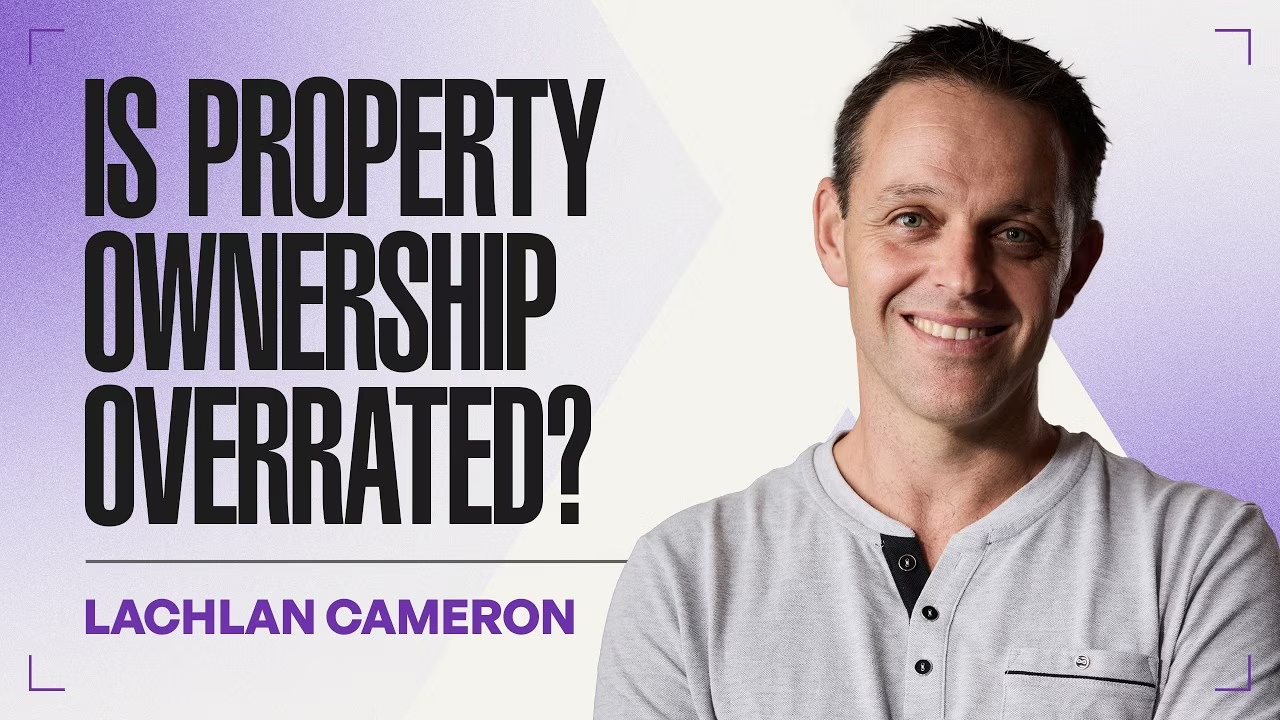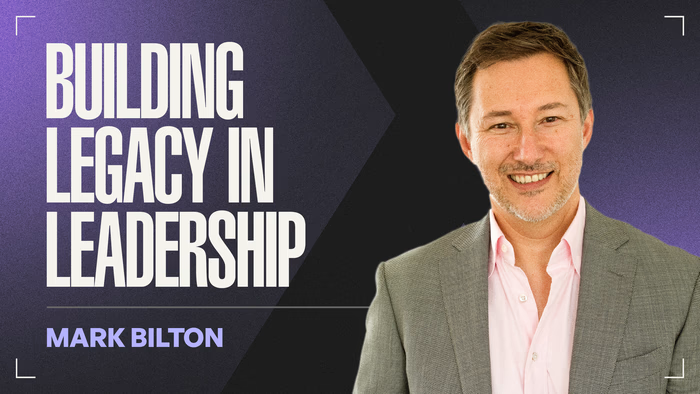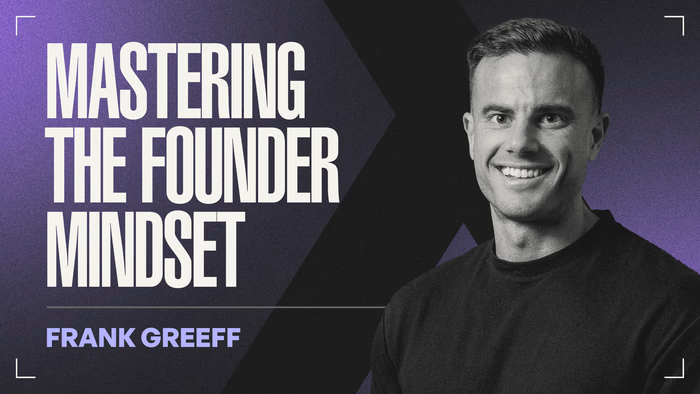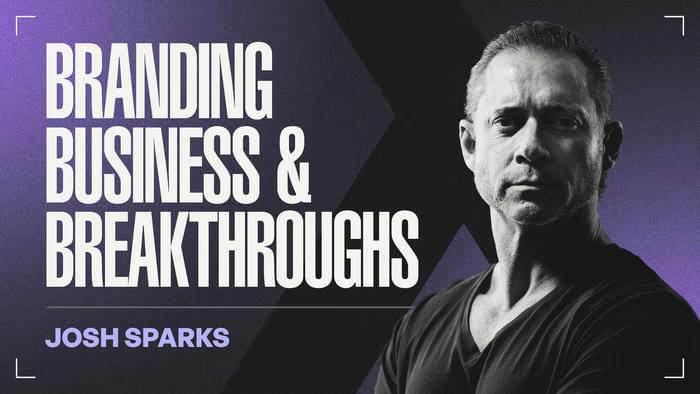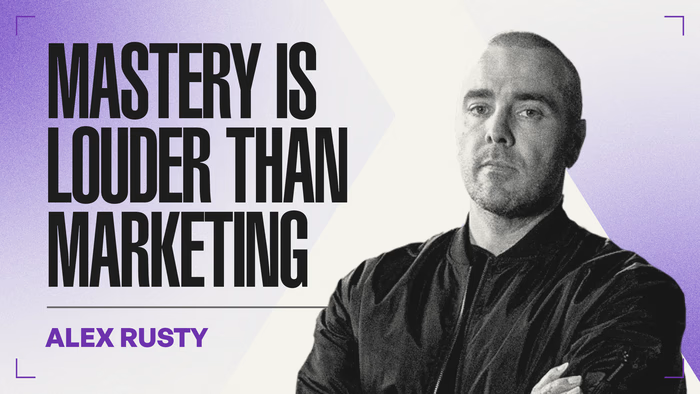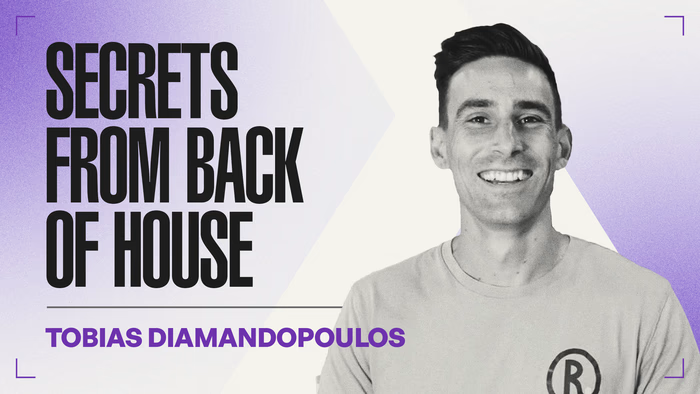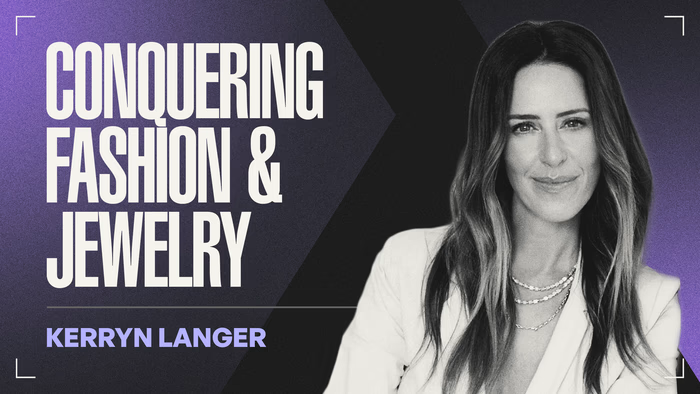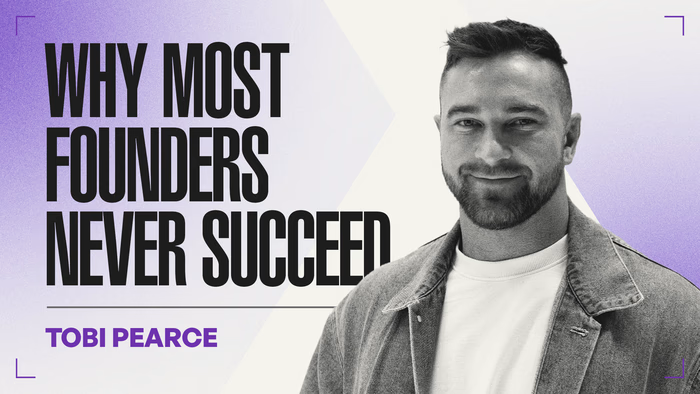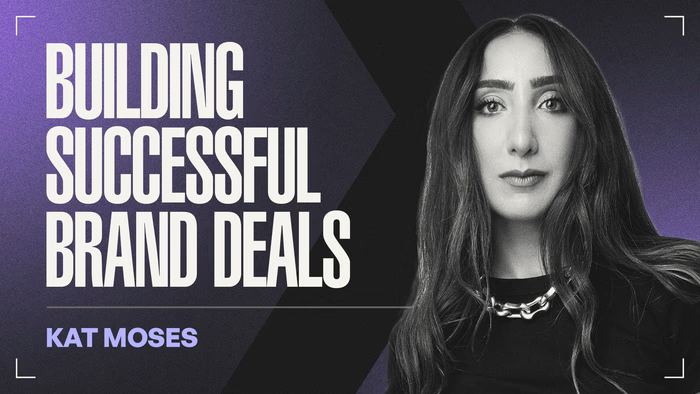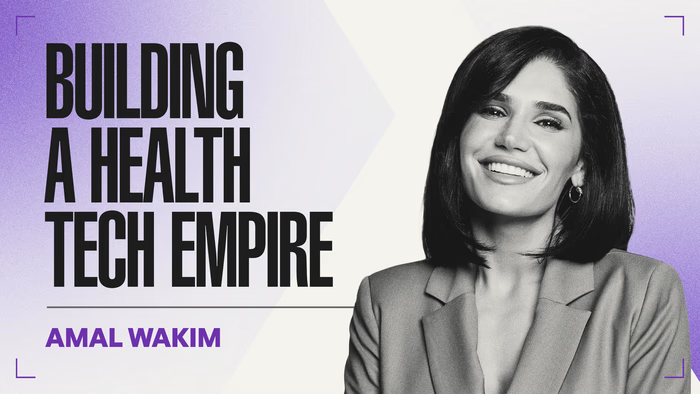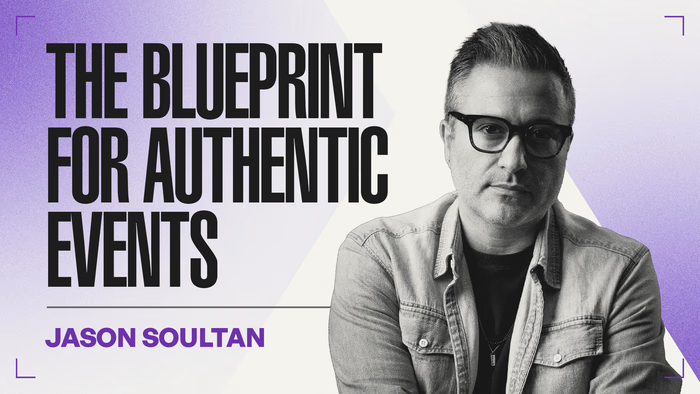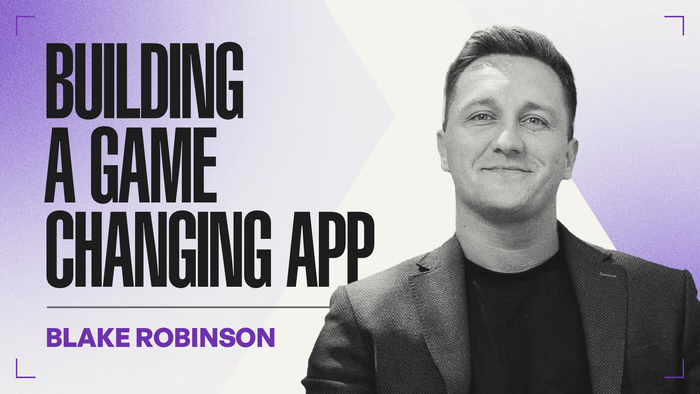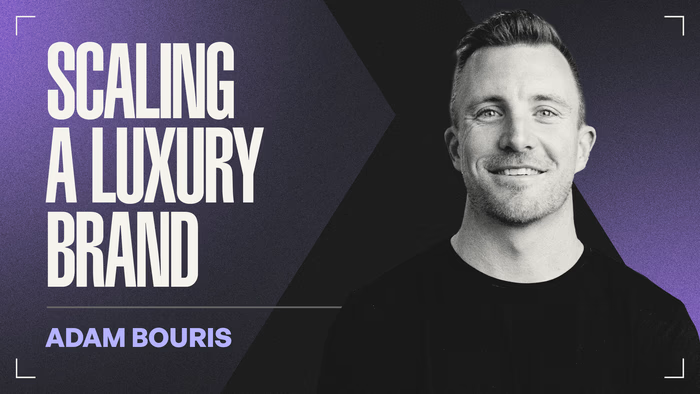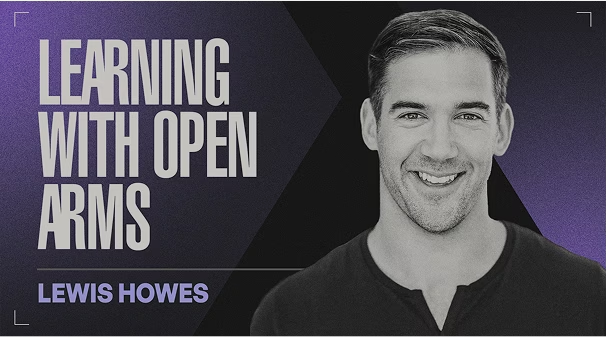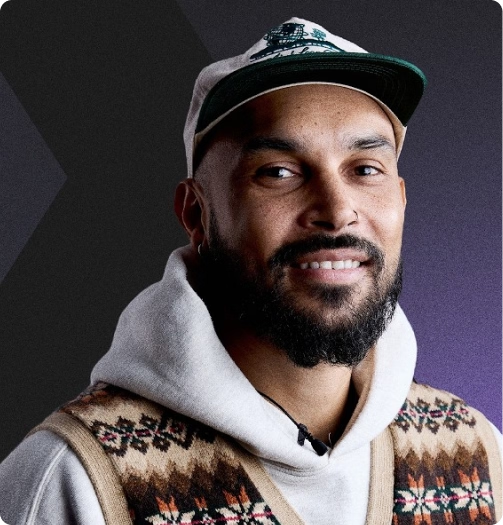


TLDR
Summary
Vince Lebon, founder and creative force behind Rollie Nation, is a global footwear brand known for its bold designs and strong community ethos. Vince shares his journey from starting a small footwear label to building a multi-million dollar brand while navigating the complex balance between personal well-being, relationships, and business profitability, which he calls the "life triangle." He emphasizes the importance of intentionality over balance, valuing oneself first to sustain energy and creativity, and the need for value exchange beyond just money in business.
Vince elaborates on his design philosophy that integrates systems thinking and creative problem solving, viewing life and business as interconnected systems that require constant adjustment and awareness. He discusses the significance of storytelling, culture, and community in brand building, highlighting that successful brands are more than their products, they are about experience and emotional connection.
The conversation also covers Vince’s experience launching Rollie Nation through unconventional routes like pop up markets and direct to consumer sales, the challenges of scaling the brand, and maintaining creativity under pressure. Vince touches on the future of the footwear industry, emphasizing the role of AI, digital twins, and personalized product creation, predicting a closer integration of manufacturing, design, and consumer needs.
Additionally, Vince distinguishes between creators and curators in the creative space, emphasizing the complementary roles each plays and the growing importance of personal branding and authenticity in an AI driven world. He concludes with reflections on agency, mastery, and the importance of being intentional about how energy and time are allocated across life’s priorities.
Highlights
- Introduction of the Life Triangle, balancing self, relationships, and value exchange is crucial for holistic success
- Rejecting balance in favor of intentional design to better manage focus and energy
- Selling 500 pairs in 5 weeks via pop up market launch, emphasizing direct consumer engagement
- Transition from creative fulfillment to scaling challenges and importance of continuous mastery
- Rollie Nation’s brand identity rooted in self expression, boldness, and community connection
- Future of footwear, AI, digital twins, and personalized production to disrupt traditional manufacturing
- Creators who protect their ideas and control their value gain significant advantage in the industry
Transcript
00:00:00 - 00:00:49
speak to anyone who's got a lot of money and has nobody to share it with, right? Like the wisdom that they have unfortunately is cuz they chase what most people want and when they've got it, they realize that wasn't the thing they probably should have been chasing in the first place. Vince Lebon is the founder and creative mind behind Roly Nation, the global footwear brand known for its bold designs and global following. Vince is a highly decorated designer and has scaled Rolley into a
00:00:24 - 00:01:16
multi-million dollar label. And so we're in Japan, we're in the US, we're in magazines. And what I realized is we weren't making money. It's because I didn't value it. So it wasn't that I didn't think the company could make money. It's just I gave it no energy. As soon as I go, I'm building a brand that is profitable. It now filters my decisions. If three things are pulling your attention, in theory, you're not giving attention to any one thing. If I focus
00:00:50 - 00:01:44
on myself, this will be the engine to provide my happiness to then to be able to take care of my family cuz that's why I'm doing it. Being a business owner, the demands on you are so high. You can get to a point where you feel like everyone's taking. Whether it's the employees, whether it's your family taking without knowing the amount of effort and sacrifice that's gone into it, whether it's people that you meet and they're like, "Oh my gosh, this guy's killing it." they want to buy
00:01:17 - 00:02:21
into it and take from you. And so like it just took this element to reframe to go, "No, this is all I get to not have to." Now, let's say someone's listening to this and they're like, "I need more of this in my life." They feel out of sync. Where should they start? Oh, man. This episode is brought to you by Wick Studio. I think to fire things up here, I really want to dive into something that's kind of one of your frameworks and I think this will help flesh out, I guess, how
00:01:56 - 00:03:00
you've approached your career and what you're doing right now. And that's a framework that you call the life triangle. What is the life triangle and where does it start? Man, it took me so many years to sort of get to this concept around doing so much um you know in in my industry trying to work on myself and then trying to manage like kids and a family and it really I sort of instilled this concept around life triangle right which there's three points and at the top there's the person
00:02:28 - 00:03:25
you you as a person right so that's physically spiritually and mentally then you've got um relationships right so for me, it's my wife, my kids, could be your dog, can be whatever, but the relationships that you have in your life. And then lastly is value exchange, right? And so many of us associate money with value exchange, but there's lots of other things you can exchange between those, right? Um, and so those the three of those I've what I've found over the years, if you only focus on one or two,
00:02:57 - 00:03:46
the other one will bite you in the ass, right? It's going to draw your attention. And so what I mean by that is if if you only focus on yourself, you become super selfish, right? You're going to feel like you have nobody to share it with, right? Um and if you don't focus on providing value to others, you probably won't make a lot of money either. If you focus on yourself and focus on value exchange, right? So making lots of money, you've still got that tension around who am I going to
00:03:21 - 00:04:14
spend it with? Have I really built relationships? Right? If you look at the other two and you focus on personal and family, so you could have you could be really comfortable with who you are and have this amazing family that supports you, but if you have no money, that's going to create tension, right? Once again, how do you provide for them? Um, and so I think it's a really interesting like when I really look at life, everything falls into one of these buckets. And I've been in situations
00:03:48 - 00:04:48
myself where I'm focusing on my family and providing and the business is making money, but I'm just not where I need to be. I'm not happy whether it's because I'm working super long hours or I'm not fit or I'm not sleeping. And so I find that you know the tension between all three is really important to understand you know where are you putting your energy and ultimately which one is suffering. Uh cuz over time you'll find that like life has this funny way in saying, "Hey, you might have lots of
00:04:18 - 00:05:05
money. You might have a family that love it, but your f, you know, you're you're going to get unhealthy and all of a sudden you get sick and now it draws your attention to that." Or I know lots of people make a shitload of money and they look like they're really happy and then you literally sit down and have a conversation with you realize they're really unhappy, >> right? >> They're like all they want is someone to share it with. Um, and so, and then I have this the
00:04:41 - 00:05:26
other concept where I have I know a lot of super creative people, right, that are really good at what they do. They love their their art and they, you know, whether they feel supported, um, whether that be through their community, a design community, whatever, but they just can't get the money right. Right. They just can't unlock that element of going, and a lot of the time it's because they're thinking about themselves. This is my craft and they're protecting that craft instead of
00:05:04 - 00:05:52
thinking about what's the exchange of value that I can provide to others. And so you unlock that and you realize, oh, it's it's not just about you. It's about the value and the exchange you're giving to others. I >> I think the way you've I guess architected this is so beautiful and we're going to share this diagram on the screen >> and and share this with people so they can see it. But like you have another concept that kind of dovetales into this which is you reject the word balance and
00:05:28 - 00:06:23
instead you like to use the concept of intentional design. Why is balance the wrong goal for creative types or entrepreneurial types? Well, I think like when you look at this triangle, right? When I think of balance, you're trying to juggle all three at one time, right? But I think it's about being intentional, right? Because if you're if three things are pulling your attention, in theory, you're not giving attention to any one thing. And so by being intentional, you're able to go, you know
00:05:55 - 00:06:57
what? If I focus on myself, this will be the engine to provide my happiness to then to be able to take care of my family which will ultimately um create value because that's why I'm doing it right. So I try to look at that triangle and starting with myself and it took me a really long time to understand that because I was very focused on providing for my family at the compromise of myself or focusing on how do I build wealth so I can one day create time and space for myself. And so I don't think
00:06:26 - 00:07:17
it's balance. It's just about awareness of knowing that all these things things are really important and being intentional on who and what needs your time and energy at that point in time. >> Now something that we could maybe unpack a little further around these three different I guess points of the triangle which is the value exchange. Some people when I share the idea of like we need to give value to the world, we need to give to others so that we can get the attention that we want. It's a it's a
00:06:52 - 00:07:40
simple concept but it's quite difficult to really grasp what it means when you say value exchange like can you unpack that a little further? >> Yeah. So I mean I look at money right and let's go to a simple form of paper money like the end of the day it's nothing. It's just paper >> right? It's a representation of something. It's a representation of value >> right? Like a symbol of something else. >> A symbol of something else. And so when you think about what is that symbol of
00:07:16 - 00:08:09
it's I've invested or invested in a skill or I provided value to someone else for them to exchange some value and you are able to use that and exchange it for something else right and so I just see it's literally just a form of value exchange that's all it is that's >> so like as a designer someone might come to you with a design problem and you would say look I've got the now and the experience to solve this I need x amount of money I'll give you x amount of problem solving skills you both win
00:07:42 - 00:08:33
that's an exchange Exactly. And so I think you know when you when you add overlay beliefs and all that some people undervalue themselves and that's why they get paid less than they should. But really if you take out the emotion it's all about value exchange. And if you can understand that you're able to then focus your efforts on going how do I provide value for people and then money comes in so effortlessly instead of you trying to chase it. And so um you know when you think about money right like a
00:08:08 - 00:09:04
lot of people out there whether we like to admit it or not are doing a job that they don't enjoy right they come in 9 to5 they spend 40 hours a week the way I look at it is what do I what value do I need to bring into their life in order for them to exchange their hard-earned money for something that I can do to improve their life because as soon as you do that then it's about it's a fair exchange and where the tension comes from when people are like that's bull that costs this much money and
00:08:36 - 00:09:34
this like it's because they have a perception of how much it should cost based on the value they're getting. Right? So if if you can find a way to sort of be disengaged with money as a concept and just think it's actually just value exchange, it changes the way that you see money, the way you invest in yourself and and you sort of take the power away from money itself. I I like the the idea of looking at that as just a flow or an exchange of energy moving through a system. When you're thinking
00:09:05 - 00:09:52
about someone feeling tension, let's say in a case where someone's working really hard, they're providing for their family, um, and they're also, you know, giving value through media or content or what have you, but they don't themselves feel fulfilled. How do you make sure that that tension isn't a permanent thing? What what are some of the first things that people can look at to maybe resolve that? uh I think it's understanding that it is very important to start with yourself
00:09:28 - 00:10:25
right because if you don't value yourself you'll find that there's other things that will distract you right so one it's accepting that you know what I am important and it is important for me to invest my time in creating happiness for me um and instead of putting so much pressure on going what's my what am I here for what's the purpose and like really beating yourself up just create the right environment for things to come to you right Like mo so many of your best ideas come through walking or in
00:09:57 - 00:10:53
the shower or when you're not overthinking something. So I like to think about creating the right state for the decisions and the intentionality to come to you instead of you forcing things. >> What are some of the things you've done to create that space to not feel like you're needing to force those ideas into reality? >> Yeah, so for me when I first started Rolley like I was working crazy hours, right? Um, and you know what? I was making money. The family was happy, but
00:10:25 - 00:11:17
I was the one that was paying the price, right? And so, and I wanted to spend time with my family. So, instead of going to the gym after work, right, I would just come back home. And I was I identified as a night owl, right? So, I'd always be working at night. But I had to completely shift that to go, you know what? I value my mental health and my physical health. Therefore, I'm going to wake up early and start training in the morning. The minute you start training in the morning, you do the ice
00:10:51 - 00:11:42
baths, you do the sauners, you do the training, you start feeling good about yourself, you create space for yourself and then you prioritize yourself, right? It doesn't mean that I do that only for the rest of my life, right? So like you still have to focus on the other areas, but creating space um to feel good and that gives me the energy to show up as my best self in the other areas. >> I I found that recently as well like cuz I'm a night owl as well. I grew up as a gamer and as a designer at night in the
00:11:16 - 00:12:14
late evening. Um, but yeah, just waking up uh, weirdly now around like 4:00 or 4:30, which seems ridiculous, but having that 2 or 3 hours of alone time in my own mind in the morning has been super helpful for running a creative agency. Yeah, 100%. I think like being a business owner, uh, particularly when it's going well too, the demands on you are so high, right? Because not only are you putting in the work, there is actually a benefit. And so everyone, you can get to a point where you feel like
00:11:46 - 00:12:35
everyone's taking, whether it's the the employees, whether it's your family taking without knowing the amount of effort and sacrifice that's gone into it, whether it's people that you meet and they're like, "Oh my gosh, this guy's killing it." They want to buy into it and take from you. And so like it just took this element to reframe to go, "No, this is all I get to not have to that mentality, right?" And so I think the more you focus on yourself, you can
00:12:10 - 00:12:57
get into a space where you don't feel like everyone's taking, but you're actually protecting your energy and you're creating opportunities for yourself. >> I can totally agree cuz like just having that time to explore my own ideas or listen to music or absorb art or whatever in the morning just feels like you're coming from a place of giving rather than starting the day requiring everyone to to do stuff for you. >> Yeah. And being like, I've got x amount of energy. How do I protect my energy
00:12:33 - 00:13:16
because people are going to take take? When you focus on yourself, you realize that you're like pouring into yourself. >> Yeah. Like a cup. Like how can you pour into other people's lives if your cup's not full? >> Exactly. >> Now, you apply design thinking everywhere in life. And one of the things that you mentioned when you first came in here is you were pointing at all the books that we have around the studio and you're like, I got that one. I got that one. Now, when you're um I guess a
00:12:55 - 00:13:51
nerd like myself and you like design books, you like collecting these things, you tend to look at life kind of like something you can design. So when you look at life, do you tend to look at it the same way you might design a product? >> Yeah, 100%. I mean, I look at life as um sol like I'm always looking at like, oh, how could I have made that better? Or cool, wonder why they did it that way, you know? I think design I I identify with design thinking more than um design being about colors and fonts
00:13:22 - 00:14:11
and I see it as more as systems. >> So when you say that, I think just for the viewers at home, can you really unpack that? Like design thinking is a really um you know people might think about this as like designing a shoe or designing a logo but like when you say design thinking what do you mean? >> So when I say design thinking I'm talking about being super intentional with what problem you're trying to solve and looking at the entire ecology of the problem right so not just fixing one
00:13:46 - 00:14:50
small element but using systems. So you know first design principles is one system that you can use but looking at the entire process and going what am I truly trying to solve what really matters what is noise and what's essential and so um even when you take life's princip you know life's triangle as an example I've instilled it to like three things and like everything else that I keep trying to break my I even try to break my own system right to I guess validate that it's valid
00:14:19 - 00:15:19
it always falls into one of those areas. And so design thinking, like if you if you think about design, right? You might go, I'll just design a triangle. Design thinking is how you got to that point, right? What was the thinking and the process that you took to get there? And I think design thinking is not static, right? It's a constant process. And I think people who share that sentiment, their brain doesn't stop because they always think about how can I make it better? why is it done that way? Um, and
00:14:49 - 00:15:36
to to understand at a really really deep level. >> So, when you see something that you like might see in public or you might see in a store and you're like, "Ooh, that really captivates me." Like, what are the ingredients that really put together a shoe? Cuz most people would just say, "Oh, it's just a shoe. It has a color." And like what what are you looking at? Like what are the things that you kind of I guess say that make up the whole, >> right? Well, I think it's like there's a
00:15:13 - 00:16:08
functional benefit, right? And so whether I'm looking at what function is it serving, there's an aesthetic element behind it. Um, and so when I'm looking at at a shoe, um, I'm also looking at the storytelling and the narrative behind the shoe, right? And so that's why I love brands like Nike who have attached so much story and emotion to product that it's much bigger than the shoe, right? a lot of the time you'll buy into it because of you saw an athlete wearing it and the heritage
00:15:40 - 00:16:41
behind it and it it really you connect meaning to what that product is. And so for me when I'm looking at a shoe um all of those emotions are going through and I'm like trying to uh understand why am I drawn to this shoe? How did it come together? What's the level of craftsmanship, the innovation? Um because when you look at a shoe, there's like at least 40 or 50 people have touched that one shoe, right? You've got the outsole, you got the midsole, you've got the last that it's built off, then
00:16:11 - 00:17:12
you've got like the upper material, toe box, front and back, you've got stitching, eyelets, um collar padding, laces, reinforcement materials. Like I can just go on for days in what goes in a shoe. Like it's it's full on. Now you've said that neglecting one part of the triangle uh can cause the other two to collapse. Um did you learn this early? Did you learn this the hard way? At what point did you really pick this up? >> I think the learning similar in the way I talk about the design systems is it's
00:16:42 - 00:17:47
an ongoing process of understanding, testing, reacting and going okay why was this part in my life challenging? Okay, cool. Cuz I was focusing on two and not the other. Like I remember when I started Rolley um I had I was like I want to build this really cool brand that everyone loves and you know I had I had done that I had built a brand that everyone that was in Nordstrom Free People Anthropology some of the best stores in Japan. So we're in Japan we're in the US um we're in magazines and then what I realized is
00:17:14 - 00:18:07
we weren't making money. It's because I didn't value it. And so it's like you get what you focus on. No right? So the minute I focused on being profitable, we started becoming very profitable. And so this is the this element of being intentional, right? So it wasn't that I didn't think the company could make money. It's just I gave it no energy. I didn't focus on it and therefore it didn't become profitable. As soon as I go, I do want a business that I'm proud of and I'm
00:17:40 - 00:18:26
building a brand that is profitable, it now filters my decisions instead of going, I'm only doing this because it's going to help me build a brand. Because it's very easy to build a brand that's not profitable. You see it all the time. It's because they're not focusing. And then you can if you focus only on profitability, you can build a brand that's highly profitable that no one gives a about. >> Yeah. Right. >> Which we see a lot of too. >> Yeah. So it's really just about
00:18:03 - 00:18:57
understanding what you value and where the energy and effort's going. And when I think about life's triangle, right, I really when I think about it visually, I think of it as a camera tripod, right? So you imagine three points on the ground. >> Yeah. And they're the three points that I'm talking about, personal, relationships, and value exchange. The minute you don't focus on one of them, what happens to that tripod? >> Collapses. >> Collapses. Falls on its ass. Right? And
00:18:30 - 00:19:19
so, and then no matter what, even if you focus on it less, you have a skewed view of the world. So, the only way to transcend yourself and get a higher view, a higher purpose, is to be able to have all three, have the focus on all three. >> Right? Absolutely. It allows you to zoom out because if you're constantly being pulled into a problem, per se, or you don't feel balanced somewhere, you you don't have clarity on all three. >> You don't have clarity on all three and
00:18:54 - 00:19:37
you don't have stability, right? This tripod is not stable on two legs. So, when you're working on all three and you're intentional and I'm not saying like you have to work on all three at all one times. It's about having the awareness of how important they are in your life. >> So, let's say your finances aren't doing great, but you're aware of it. You're aware of what's happening. You can still zoom out. >> You can still zoom out and then you put
00:19:15 - 00:20:10
your effort and energy into that leg to be able to prop it up so that there's stability. >> That totally makes sense. >> Yeah. >> Now, if you if you're able to, I guess, identify which of the three isn't doing great for yourself, why is it that having awareness about it allows you to zoom out? Like what exactly is the unlock? >> So, the unlock is when you you it's very hard to aim towards a goal that you don't know is important to you. So by having the awareness you can say right
00:19:43 - 00:20:42
these three things are really important what am I not doing or what could I do to provide uh value to that space right so when you think about u money is a really simple one right because a lot of people like well I'm doing all the right things I'm just not making money well are you really providing value to others because if you are they will exchange that for value and then you'll make lots of money you can make money doing anything right you see that across any industry people, whatever people value,
00:20:12 - 00:21:04
they'll go and spend the money on. Right. So, you know, if you look at exterminator with, you know, if you got a mouse, somebody's willing to pay money to have someone else come in and get rid of that mouse. >> Yeah. >> Right. So, it's like it's whatever that person values to them that they're willing to exchange their hard-earned money for. Um, when you look at your personal life, if you don't understand that working on your personal physical health is important, it's only until
00:20:38 - 00:21:26
it's taken away that you realize it's super important. Now, if you were aware of that from the beginning, you would have made sure you would didn't get to that point. Can you see what I'm saying? >> And I can I can really understand this because like I've been through this myself where you're like, I'm really enjoying this creation process. Everything is pretty good on the relationship and home front, >> but man, we're not exchanging value in the right way to get enough
00:21:02 - 00:21:52
profitability. Yeah. >> Then you focus on that. Then the home front struggles for a little bit and you're going back and forth and you're trying to keep >> some sense of groundedness in in life. But if you've not got one really grounded >> um and the other two are suffering at the at the same time, it can it can really pull your vision down into the problem. >> Yeah. And this is why I think like balance is not really the goal. It's about being intentional, right? But
00:21:27 - 00:22:16
being intentional and having it in your awareness doesn't mean neglecting. So if you went from I'm a real great family person to going, "Oh, now I have to focus on my business and forget the family completely." You're going to have different problems later. You know, the wife, the kids will resent you or you might resent the fact that you've resented, you know, that you've neglected them. So like the problem will manifest itself later on. But if you have awareness to say, "Right, this is
00:21:52 - 00:22:39
what's important right now, and as soon as I get it to that point, I'll be able to dedicate more time and energy, and it's just all about energy and having and being able to sort of work through those those areas." >> Now, let's say someone's listening to this and they're like, I need more of this in my life. They feel out of sync. Where should they start? >> Starting with yourself. Starting with yourself is the most important part where you know you have the stillness to
00:22:15 - 00:23:07
be able to stop and um and ask yourself you know in those three areas. Cool. What does relationship mean to me? Who is it? Like you know um if you don't have kids that's totally fine. It can be a partner. If you don't have a partner it could be a dog. If you don't have a dog it might be community. That's why people look to religion and look to whatever it is. There has to be an element though of others right? And so just what does others mean to you? Because if you don't have that
00:22:41 - 00:23:46
relationship with others, it will come for you after, right? And the same with value exchange. What are you doing for value exchange? So whether that be money, whether that be time, whether that be friendship, there's lots of things that you can value, right? It's not just money. Um, and so I think just being still to actually just process in your awareness what is your relationship to all these things. Which one have you maybe put too much effort in? And which one have you maybe neglected? Which one
00:23:14 - 00:24:07
would you like to spend more time focusing on? And then just and being totally cool with this is not around judgment. This is just about having awareness to go these things are important. Um where am I at and where would I like to be? >> And what's you mentioned there it's really important that we have relationships around ourselves that I guess feed into our lives. What's the danger of not having good relationships and trying to, you know, accomplish something of any ambitious value?
00:23:40 - 00:24:29
>> Speak to anyone who's got a lot of money um and has nobody to share it with, right? Like the wisdom that they have, unfortunately, is because they chase what most people want and when they've got it, they realize that wasn't the thing they probably should have been chasing in the first place. >> Why do you think this is such a hard thing to realize? because people are so focused on what they want as opposed to um you know what they think they'll always have. I can get that later. I can
00:24:05 - 00:24:56
build rel I'll find someone later once I'm more financially stable or I'll f I got to focus on the business and once the business is going I'll look after my kids. I'll spend time with them once maybe the kids don't want to spend time with you. By the time you've made enough money they might feel neglected and don't actually want to spend time with you. >> Yeah. >> Right. And so it's just around being intentional once again, right? So about understanding what's important in life
00:24:30 - 00:25:25
and relationships, you know, like you look at Castaway and all those movies like people go insane if you don't have and like literally insane just means being in yourself only in isolation, right? So like it's one person, you literally be insane. >> Wow. >> By definition. >> Oh, goosebumps. Yeah. I know what you mean by that cuz I've been in that space where I feel like you're talking to the wall. Yeah. Yeah. >> Now you you talk about another concept as well as balance and you talk about
00:24:58 - 00:26:02
harmony. >> Why is it so important we have a relationship with harmony and not focus so much of our attention on balance? >> Yeah. Because harmony is around having awareness and being able to choose where your energy goes, right? And so um I don't think everything has to be equal at all times. I think like I said balance is I think the wrong word. Um because there are even something as simple as like headwinds and tailwinds, right? Um sometimes it's very it's much easier and uses less energy to go to
00:25:29 - 00:26:28
something that is pulling. It's it's a it's a tailwind, not a headwind. So I think if you're always trying to balance everything, you're constantly fighting something. You're fighting to get uh to each of those areas all at one time. Whereas if you have harmony which is around awareness and just going right I'm at I'm at peace with where things are at and I have intention of fixing this or attending to this. It's just a much calmer way to I guess like when you
00:25:59 - 00:26:46
think about Tai Chi also not to fight against energy but to flow with. >> Yes. >> Right. And see how even just you're like relaxed just then I was like that's so good. Yeah. >> Yeah. So that's the that's the harmony element. That feeling that under that instinctual understanding that you're talk that you just felt is what I'm talking about. Whereas balance doesn't give you that. >> Balance feels like you're constantly compromising to be able to tend to
00:26:22 - 00:27:05
something else. >> That is deep because I think when you're when you're trying to find balance, you're >> it's almost like forced. You're not really sitting with what's happening. >> Totally. >> You're trying to force a different outcome. >> Yeah. Exactly. It's like I've got x amount of energy. This has to go here. This has to go here. This has to go here. Life doesn't work like that. >> It doesn't work like that. >> So, when you talk about Tai Chi, I don't
00:26:44 - 00:27:29
know if this is accurate or not, but it's like um there's that quote and it said that better to be a warrior in a garden than a gardener in a war. >> Yeah. Exactly. >> So, when you think about harmony, you know, there's times in my business where, you know, we've had a consultant come in and they've looked at something and they're like, "This is terrible. Like, we need to advise you on this." And it's like I'm aware of that. >> Yeah. >> I just choose not to be panicked about
00:27:07 - 00:28:06
it. >> Yeah. >> So, how much do you think of like being a creator in business is really about just having some sense of calm despite being faced with obnoxious levels of problems? Oh man, I think that's being like when I think about it at a higher level, just being a business owner, even outside of just creativity, I think to be a business owner, there's an element where you just have to be okay with going, I know there's so many things I need to attend to, but this is the thing. This
00:27:36 - 00:28:35
is the difference that will make the difference and just focusing only on that instead of trying to worry about trying to do everything, right? Because there's not enough hours in the day to attend to every known problem. It's really and that's not the value. The value is understanding what's the thing that I need to do today that helps drive the business forward. And as long as you do that, there will be progress, right? But if you are constantly fighting with yourself to do everything,
00:28:05 - 00:29:04
like that's just a that's a terrible state to be in, right? Because you're never done because the only time you'll be done is when you stop growing. When people talk about uh like if you know what to do next, it means you're not pushing your boundaries. It means you've been there before. So the only way for true expansion and growth is to get to a point where you don't know what comes next. Clients want it all. A slick looking website that can run their business and scale with their
00:28:34 - 00:29:46
success. Wix Studio is built for that. Plan out your client's whole site in seconds with AI powered site mapping and wireframing. Then, when everyone's on the same page, jump into the creative, starting off in Figma or in the Wix Studio editor with super precise layouting tools like grid, stack, and flexbox. Go above and beyond the brief with no code animations, custom CSS, and built-in business solutions. and make your whole vision responsive in a click. And there's zero need to break a sweat
00:29:10 - 00:30:12
when clients grow fast. A dynamic CMS with global design settings and reusable assets lets you turn one page into hundreds. Design smoother and deliver sooner. Go to wixstudio.com. >> Now, when you think about the emotional highs and lows of building a business, what were some of these initial challenges that you had? So, you maybe had this initial rush of like, I got a cool idea. I'm passionate. I found a way to, you know, manufacture uh, you know, kind of the same unit, save cost by
00:29:42 - 00:30:32
doing, I think it was 10 colors you did on the first run and 500 pairs, was it? >> Yeah, 500 pairs. We It was actually five colors, 500 pairs, and we sold in less than 5 weeks. >> Wow. Now, I understand that you did this in an unconventional way because you you could say, well, we need to have an ecom store and we need wholesalers and all the rest of it. I think I liked your approach because you went straight to the consumer. Now, talk me through that. Like, was that the initial idea or did
00:30:07 - 00:31:05
you get to a point where you realized, hey, we're going to sell these things. How am I going to sell this? Um, so when I was when I created the product, um, to go back to the the the brothers, um, brand that we had at the time, we were doing a trade show and I had just flown back from China that night and I had three maybe three samples and I just put them underneath in the in the booth on the floor because I was meeting someone I was going to show them. And when I was at the trade show, someone had walked
00:30:35 - 00:31:21
past, looked at the shoes, kept walking, walked back and said, "Tell me about those shoes. Like, what's going on here?" And so I told him the what the concept was. And she was really blown away by what I was trying to create. And it was like, she's like, "I've just walked the entire trade show and that's the thing that has really stood out to me." She's just like, "You need to launch this." I'm like, "I just got them yesterday. I plan to."
00:30:59 - 00:31:41
>> You're like, "Calm down." >> She's like, "Yeah, exactly." She's like, "Oh, what are you going to do?" And I'm like I to be honest with you, I hadn't really thought about it yet. Even though I had already had a product because my thought process was I've got the model locked down, right? I know I'm going to do wholesale and online all these. I just hadn't worked through the go to market yet cuz I wanted to get the product right first and that was going
00:31:19 - 00:32:06
to be my next phase. She just happened to be um a guest speaker at the conference and she's like, "When I'm when I finish my my speech, I'm going to come back and I just want to work with you." >> She said that. >> Yeah. It was crazy. >> Um, and then I had the guy next door hearing that and he's like, "Oh, cool. How much money do you need? I'll invest in you." And it was just like, that was literally day one. >> Um, and she was the one who put me on to
00:31:43 - 00:32:31
a pop-up. She's like, "I think you should do a pop-up in Melbourne Central." And one I was like, "Melbourne Central sounds like high rent. I can't afford that." Um, but I hadn't really heard about pop-ups because it was such a new concept at that time. >> Yeah. It wasn't really a thing, right? You either had a a retailer, a big box, or nothing. Exactly. >> And then ecom was kind of early days. >> Exactly. Yeah. And so even though I was a web developer, so I was thinking,
00:32:06 - 00:33:08
yeah, I'll definitely do a website. Um but it was she was the one that opened me up to maybe you should do a pop-up. And I didn't end up doing um the Melbourne Central one, but we ended up doing a pop-up at the South Melbourne market. And so literally that's where I launched. And I thought I I had actually created the website. I handcoded um my site and normally so Shopify wasn't around or it wasn't a big deal at the time. >> Yeah, we had Magenta. >> Yeah, Magento. Yeah. And so I did uh I
00:32:37 - 00:33:46
had with a big commerce was out and so I used the e-commerce site and Big Commerce for the e-com site and then I built the front end in uh WordPress so I could push out content through CMS and then I did all the transactions on Big Commerce. But the customer had no idea. Yeah, >> it was absolutely seamless. I could update content on my phone and they could transact online. Like it was Yeah, it was awesome actually. Um and so that was it. That's sort of um the journey of how it got to in although I was going to
00:33:12 - 00:34:11
do an online my online presence became about content delivery the the popup became the way I got feedback and the way we actually started selling the products. I didn't even get to wholesale. That was my background. But we'd sold all the shoes within that time frame that I didn't even have time to actually go out and sell to wholesale. So, um >> So, I think you I understand that you sold 500 units in in 5 weeks. >> Yes. Yeah. >> And you had nothing left to sell. >> That was it. We placed 500 pairs. We had
00:33:42 - 00:34:34
And so, what happened is then I used my website to build a mail a mailing list to be able to um sell direct to consumer. My first wholesale account was the world's largest shoe store in Dubai. >> Wow. >> So it was like literally five weeks in, I had press in the newspaper. We had sorted out of all our shoes. We had people screaming for more. Um, and yeah, so it all just happened very quickly. >> Now, clearly you've struck a nerve with the product because I think that you
00:34:08 - 00:35:09
found a good product market fit. What was it that she noticed at the trade show? Was it the color, the design? Like what what caught her eye? >> Yeah, I think that it looked very different to what was out there. Like I said, we had a white sole um on a that type of shoe. It was a men's wear inspired shoe but in female sizes. So that was different. It had a white lace on it that was different. It was in pink, yellow, and green. Like that was like there was so many things that made her stop in her tracks to to take it in.
00:34:38 - 00:35:25
And I remember when I designed the brand um when I was working on the business model, I didn't do black initially. And I knew black would be our best seller, but I knew if I had done black, people wouldn't have stopped people in streets and say, "Where'd you get that shoe from?" And so when I sold all these 500 pairs, I literally had people on the streets walking around in our shoes and they became like advertisements cuz people would get stopped and say, "Oh my gosh, where did you get that pair of
00:35:02 - 00:35:59
shoes from?" They'd say, "Oh, it's this brand in in the South Mel market." And that's how we were able to to grow massively. And so I see it as we weren't even just selling our first pair. I was basically selling two pairs at one time, right? Because I know you can't wear yellow everywhere, but you can wear black. So, on the I think it was the third order that I did that I finally did black and it sold like crazy because by then people knew how comfortable they was. They knew
00:35:31 - 00:36:15
their size. They've been getting constant compliments non-stop. And so, as soon as Black came out, that was it. It became a bestseller. >> And I know you were literally throwing these at people and saying, "Hey, catch this." >> Yeah. Yeah. I mean, we're at the South Melbourne market, so like who wants to buy a 100 pair, you know, $100 pair of shoes at the time? No one. >> This was in like, you know, it was in the section where they used to have farm animals apparently.
00:35:53 - 00:36:42
>> Um, and they had cleaned that out to make it a really cool area for young independent designers. Um, and so when people were shopping, I would literally just throw them a shoe and then stop and be like, "Oh my gosh, it's so light." Be like, "Yeah, if you got time, come try it on. They're so comfortable." Um, and that was it. That was how we we launched the brand. And I think um being able to and that's the thing like connecting to story connecting to value
00:36:17 - 00:37:16
proposition I was able to get people to stop and say right is this for me they don't have to buy it but I need them to stop and look at it to be able to decide. >> Yeah. So many people I have met have started brands from the markets. So Simon Beard, he started at the markets um selling sneakers from shipping containers uh with camera equipment and um also Arms of Eve started at the markets and you know she she was turning heads with her products. How much do you think of like that early series of
00:36:46 - 00:37:49
conversations really set up the I guess identity behind how you were going to continue to scale the brand? >> Um you know the brand was called Roly Nation from the beginning. So, I always had this sense of community and I knew community was going to be important. Um, I think what the going in a market, what it allowed me to do is get firsthand feedback for how people felt about what we were doing. Um, so I think that's important. Um, and just the sheer volume of being able to get in front of a lot of people, I think
00:37:18 - 00:38:10
was really, really valuable cuz I think if I had done an online site, you know, even if you think about today, you got to spend so much effort now getting people to the site, whereas I just met people where they were, right? So, there were already 11,000 people going there each day. My job was to snap them out of their daily routine to stop to see if this brand was right for them. And if you were to zoom out at that point in time and we were talking before about the triangle and like the different I
00:37:45 - 00:38:43
guess legs of the tripod, where do you feel feel like you were at that point in time? >> Well, I didn't have kids at that point in time and so my wife was very involved with selling. So I feel like it was extremely fulfilling for me because I had f this is my brand. This is the first time I'm putting something out there. Um so it gave me a lot of energy. My wife was there with me so we were building incredible memories. Um, and the the value exchange I think it was very high because people really
00:38:13 - 00:39:07
connected with it. So I think when I reflect that's one of the moments where everything you're in flow state like if you can get all three going that's basically where you're at, right? You're in flow. You're no longer trying to intentionally divide your time and energy. It's just flowing and it was all working. um you know and then over time I think your expectations of how much money it should bring based on the investment of time and effort uh and risk that you've taken changes. Now if
00:38:41 - 00:39:39
you fast forward a little bit you're in anthropology, you're in some of the biggest retailers, the biggest retailer in Dubai. You're being spoken about in the press. You're doing collaborations with massive massive people. At what point did the triangle start to break? >> Oh yeah, I remember very clearly. Um, and it it took me on the most incredible journey, but I remember it was about three four years in, right? Um, so I had really written all that momentum. I've gotten to the point where I'm like,
00:39:10 - 00:40:03
cool, I've built this brand. It's not making as much money as I thought it would be. I've started focusing on money and now it's starting to flow, right? But what I remember at that time was going, oh, the one part that's really start starting to suffer was my personal creativity. And the reason for that is I've designed, you know, I went from designing 400 shoes to now having one the same shoe and all I'm doing is changing colors. >> Yeah. >> Right. So I didn't feel it was
00:39:36 - 00:40:35
creatively filled. Right. And although I could have done that in marketing and storytelling, there was a design product design element that I really felt was missing. So I design I applied for a design scholarship at Pencil, right, which is the world's best sneaker academy in the US. and it's only two weeks. I thought, cool, I can take two weeks away from my business. Um, so I applied. Uh, and I didn't get in. And I remember being like, what the I didn't get in. Like I I know how to do this. I've been
00:40:06 - 00:40:57
doing this for four years. I've been designing. >> You're like, I'm the goat. I got this unlocked. >> Yeah. I like I just remember being like, man, this is wild. Like, why didn't I get in? Um, you know, you got to remember like my portfolio >> just like my ego got a little bit hit. But actually um what I did is I reached out to the founder and said, "Hey, once again, I'd love some feedback on why I didn't get in." So I took the exact same approach that worked for me before. Why
00:40:31 - 00:41:27
haven't I got in? I'd love to be able I really want to be and go to this course. Um so I'd love to get some feedback. And his feedback was, "Don't take it to heart. We have thousands and thousands of people applying all the time. Just keep applying." The funny thing was is at the time when I got that feedback, it didn't feel that constructive because it didn't tell me, you know, your your proportions were or there was nothing tangible to take other than keep trying. And so I
00:40:59 - 00:41:54
but I remember that moment of me trying to it didn't match my expectations on what I thought was going to come back because I just thought it's very logical. I did something wrong. That's why I didn't get in. Tell me what it is. I can make it better. But what he said was just keep applying you know just and and so what happened is I made a shift then from going ah this is not about getting in and getting external validation this is about me mastering my craft. So I worked on the next uh application
00:41:27 - 00:42:14
and before I even got a response on whether I got accepted or not I had worked on my third and that was the mind shift. This is not about them saying I'm good enough. This is about me getting better at my craft. >> Whoa. So you were like, not only am I going to apply again, but I'm going to go for a third round. >> Yeah. >> What what drove you to want to do that? Was that just for you? >> Yeah. That was my my commitment to mastery around getting better and like whether I get accepted or not is not a
00:41:50 - 00:42:42
reflection of whether I'm good because he's saying heaps of people apply so just keep applying. So I'm like, ah, this is an opportunity for me to really hone in on my skill. And so luckily I got accepted in the second one but I had already got the lesson and the learnings that this wasn't about that. This was about me getting better. Uh so then I went to Portland. So I got the scholarship. This is where my mom was super proud I got a scholarship. You know it's only two week scholarship but
00:42:16 - 00:43:30
she was super proud. I'm going overseas. Um that turns into a competition which I didn't actually know at the time. Um and so we got given groups of three. Um I think there's about four five teams, six teams maybe. Um one of my team members gets sent home and so now we're one man down and I just lock in and we end up winning this competition and so um we did a released a shoe with Asex and Foot Locker uh and apparently it sold out in an hour and so it was super cool experience. Um, and then I flew back to
00:42:53 - 00:43:54
Australia. Um, and they were like, "We're going to do a TV show and we'd really love for you to apply." And like I've got two young kids, you know, I think under two at this point. And um, I had no intention of being on a reality TV show. It was just it's just a foreign concept. Like all I wanted to do was like take some time off to just, you know, recharge my design batteries. I say it was my design satical, right? it was that was for me. >> So then they they yeah said I should
00:43:24 - 00:44:31
apply. So I thought all right cool I'll apply put some work in submitted it. Um and it's a like full-on process to go on a reality TV show like just the contracts the amount of interviews that you go through and the work you need to submit. Uh in the end I I they I got accepted um and the visa luckily just came in at the right time and flew over there and then was part of a US TV show for for eight weeks designing for celebrities. It was just absolutely intense and um >> and this is all happening I guess as
00:43:57 - 00:44:53
Rolley's also growing. >> Yeah. So Roly's already going. This is the crazy part. Like >> so you have a young family. >> Yes. Yes. >> You have Roly and then you're on this TV show >> trying to win this competition all at the same time. >> Exactly. >> Yeah. >> That's It was so much. But like I said, I think it was like it was me just going I want to focus on myself for a little bit cuz I felt I was not giving the attention that my creativity needed to
00:44:25 - 00:45:18
then winning that to then another opportunity saying we think you should be on the show for then me to go there and get an opportunity to go there and do it. And then when I was in the show it was crazy like we we'd meet the celebrity um they'd pitch to us what they what the need was. We'd come up with concepts by the end of the day. The next day we'd work on the concepts. The third day we'd physically make the shoe. And the fourth day we'd present back to >> Wait, how do you just physically make a
00:44:52 - 00:45:48
shoe? >> Like literally physically go out and do all the stitching, pick all the materials, like literally make the shoe. And so we had um they had technicians that were helping make the shoe. We So everyone had one technician to help make the shoe. They're shoe makers, but I got a lot of experience in shoe making. So I was doing a lot of the shoe making too. So >> you're like guys I used to do 400 of these every every sing. >> Yeah. So it worked massively into our favor cuz like I have experience across
00:45:20 - 00:46:15
all of the areas. So whether it's business sketching um and the marketing side and then there was the the fourth component which you're not part of the team but was the technical shoe making. So I could do all of the areas. So I just helped sort of >> You came in as like a full-blown samurai at this. No one sort of chance. >> Yeah. It was it was me and my element you know. Um, and as soon as we did it, you know, if we won a lot, most of the time we won, thank God, which is amazing. But, um, they would delete your
00:45:47 - 00:46:39
own computer and you'd start again. So, you couldn't save any, you couldn't create style guides, you couldn't save assets, you couldn't do nothing. We had no phones. We had hidden cameras everywhere. It was just like absolutely intense. >> Jesus, man. Take take me into that. Like, if you were to zoom out at that point in time, did you have balance across everything? >> Oh, no. no. No. There's I think uh that's pure adrenaline. Uh it's designed like that. Like if you can imagine a
00:46:13 - 00:47:07
show is trying to build a narrative >> because they want drama. >> They want drama. >> They want bigot big personalities clashing. >> Yeah. >> Yeah. >> But it was like an incredible moment of my life cuz it's not something you go through, you know, often. >> Yeah. But I remember doing the full eight weeks and thinking, okay, I've just designed like every four days I could I could design 52 shoes a year and have three days off, right? Like that's the level of work
00:46:40 - 00:47:29
that we were working at. But we were doing it non-stop. So I was like, I could it just it unlocked this thing in me. I was going, all right, that's beast mode. That's when if I ever need to lock in, I know I'm capable of so much. >> Right? Yes, you can lose focus on the other areas, but I think that's what I'm talking about. It's not about balance. It's about being intentional. So, if I need to be intentional and dedicate a huge amount of my time and resources to
00:47:05 - 00:47:50
something, I know I'm able to do it because I've done it before. >> So, it's like seeing how far you can go under copious amounts of pressure, how clever and weird and creative you can get. Exactly. >> And then taking that mojo back home. >> Yes. Exactly. And you can do that in any area, right? Doesn't need to just be in design. It can be anywhere. You just go, "Right, I'm absolutely locked in to a goal and I can give it everything and then cool, release that pressure gauge
00:47:27 - 00:48:27
and then go on with life again." >> Yo, my name is Dane Walker and I am disgustingly obsessed with branding. I had to figure out a way to do branding every single day. So, I branded myself. >> Then I started my agency, Rival. always >> and hire a team of branding mavericks hellbent on creating brands so good that they'll make your competition their pants. So here's the thing. You want your brand to go viral and rival makes brands go viral. That's why we're
00:48:05 - 00:49:00
offering you a free 30inut branding session to get an expert's opinion. If you don't believe me, the proof is in the pudding. Here's what clients have to say about Rival. Rival is trusted by brands like Nutrition Warehouse, Flight My Bricks, and Voomie. So, if you want to absolutely smite the competition and make your brand go viral, hit the link below and book in your free 30-inut branding session. >> Is there a difference between selling a product and selling a brand experience?
00:48:32 - 00:49:21
>> Oh, yeah. 100% there is. I think the best way I can communicate this is how many good singers have you heard of that have never made it famous? And so like a good singer to me, someone who can has like incredible vocals is like a good product, but it's it's only or a great product. It's only until you find a way to package it and to bring meaning and story and energy behind it that it becomes something much bigger than the voice. >> Yeah. They need to have an outfit, album
00:48:57 - 00:49:53
covers, culture, posters, things that feel a certain way. >> Exactly. If you think about like why so many entrepreneurs believe that product quality is their brand, what is it that they're missing? like how how do you help I guess help people cross that chasm into thinking about okay how do I actually build a narrative? How do I share an experience? Like it's it's a hard thing to describe. How do you explain it? >> Um I think it's like trying to understand why they value it so much.
00:49:25 - 00:50:22
Sometimes people value product because that's their safety net. It's like that's all they know, right? So it's a protective mechanism of going cool how what would you what would happen if this let's say you had the the best product what would happen if we found a way to connect to community what would happen if you were to connect to culture right and take them out of like this idea of just because I have product that's great that's enough because we know that's not
00:49:53 - 00:50:47
enough right like for sure it's it's that's a objective view of the world right what Sometimes when you look at story, sometimes if a story is so powerful but the product's they just won't be sustainable, right? So you can't have product and a great story because if you do, you'll get all the attention. You'll get the initial buying, but you won't get the retention. >> Yeah. The the brand will have a bit of hype and collapse. Yeah. >> Um but I think if you have the other
00:50:21 - 00:51:06
problem where you focus only on product, you'll get the retention, but you can never get the retention without the first customer, >> right? >> Yeah. >> So it's like cool. It's just about understanding where you're at in the life cycle and going right if you don't have enough customers. It's actually not a retention problem. And really good product falls in the retention bucket if you're not focusing on lead generation. Now, so many people try to get into the
00:50:43 - 00:51:35
shoe space or they try to get in into the fashion space and they spend a lot of time like you said developing a product but then again if they don't have the attention or retention they can't you know initially even get the brand out in the market. When you think about someone trying to curate that culture or that aura or that feeling around a brand, what are some of those ingredients that they need to think about? >> Uh, I think it's about being intentional with what you're trying to do. So, what
00:51:09 - 00:52:07
is like really like locking into what is the feeling that you're trying to create and then what are the ways you can actually create that feeling and connect beyond the product itself. Um, that's that's super important. So like having the intention to do so is the first step to actually delivering against it. Otherwise, if you're focusing all your effort on product, you just will never get to that point because it's not even in your awareness. Right? So focusing on that experience around
00:51:38 - 00:52:36
whether it's um you know a certain trade show, whether it's connecting to music, it's about once again knowing where people are and what is important to them and shifting to that value exchange around again of how can you provide value will allow you to lock into and value is is like I said very much beyond the product, right? Like if you think of footwear, there's so many brands out there that can protect your feet, right? But which ones are connected to culture? Which ones communicate that you're a
00:52:07 - 00:52:58
type of person, right? Which ones give you this feeling of, "Oh, it doesn't hurt my feet. It allows me to get more out of my day." Um, which one says, "I've got lots of money." Right? Like whatever's important to that person. Because this is non-judgmental. When I talk about value exchange, it's about what's important to that person. not what's important in general because different people value different things. >> When you were looking at the market for
00:52:33 - 00:53:31
Rolley, like what's your version of the story? Like what was the gap that you were really trying to fill with your product and and more importantly with your brand? >> It was very much around creative expression, right? So that's why we didn't launch black, right? Because when people saw that pink, that yellow, that green shoe, that wasn't for everyone. But the person who loved that color was obsessive. It popped. it connected with who they are as a person, it said a lot about them. And that person, if they're
00:53:02 - 00:53:55
loud and bold and proud, is probably going to want to connect with other people. And when other people say, "Oh my gosh, like tell me about that brand." They now are able to tell that story. And it really gave them a lot of energy once again, right? So that the connection wasn't around creating footwear. It was about creating a an a tool of self-expression and a tool of community, right? Right. So, it's almost like you're designing emotion or you're designing a specific frequency of
00:53:29 - 00:54:19
belonging. >> Yeah. Yeah. For sure. And once again, links back to the nation, right? That was the whole point. So, uh Roly was named after my wife. That was her nickname, Roly. Oh, I didn't know that. So, >> yeah. So, I I never called her Roly so much, but I used to like all her passwords used to be Roly. Uh I've changed all the passwords now, but like >> I So, I named it after her and then we attached roll nation to it um because that sense of community. So, like for me
00:53:53 - 00:54:52
it was around this idea of like love and community. As cheesy as that might sound, that's honestly what anchored the entire brand. This element of going how can we all help be ourselves and have this like idea of like and that's why when you look at the way I design, I'm a minimal maximal designer, right? So, >> yeah, I love the concept of the justosition between something being so simple, so pure and then like adding on so much stuff that it creates its own identity. Um, that's where the color
00:54:23 - 00:55:13
clashes come from and that's where the shoe's so simple but then it's got a bright color on it and that's just been my my design aesthetic over the years. >> So you found a way to kind of add your soul or your spirit to the design but then also I guess stitch that into community. >> Yeah, exactly. And it was going to be relevant to that one person so that person feels like that shoe has been designed for them. >> What's the danger of doing the opposite of that which is to design something
00:54:48 - 00:55:37
that is a product fit for quote unquote everyone? Yeah. You just mean you mean nothing to everyone, right? Yeah. Like if you if you're not pointy enough and there's no real per if you're trying to appeal to everyone, you end up appealing to nobody. >> Yeah. Now, when you think about community, a lot of people throw this around like a buzz word, like we build community, we focus on community, but then you look under the hood of a business, they're not really doing much to kind of stoke or or create a space
00:55:12 - 00:56:12
for that to to take place. When you think about community, what do you think of and what are some things that entrepreneurs should be introducing into their labels? >> Yeah, community. I mean, it's it's such a big term. Um, but for for me, it's around engagement. So, being able to have a dialogue, being able to co-create with people, being able to help them live their best life. So, it's this uh pull push and pull relationship. Um, so it's not just around listening, right? It's
00:55:43 - 00:56:34
about listening and then doing something about it, getting feedback and going back and forth. And I guess that's why the market worked. I was engaging, going back and forth. That's why I'm always constantly putting something out, testing, and then um going back and forth. So that's what community means for me. It's not like let's just all get together in one particular place and like talk. It's it's around Yeah. engagement, ownership, and for them to say, "Yeah, I choose to be a part of
00:56:08 - 00:56:58
this. I choose this brand." Not cuz they were told to, but because they want to be. >> Exactly. I didn't I didn't pick this brand because it was the cheapest one on the shelf. >> We recently had a um a guy on the podcast, his name's Josh Sparks, and he was uh the CEO of Tom Brown, New York, >> and he was sharing with us a concept around how he felt like marketing and advertising and branding had kind of gone through multiple different eras. One, which is when they were basically
00:56:33 - 00:57:18
telling the market, hey, like buy this product. And then it went to we're listening to you and based on what you said, we want you to buy this product. He believes we're kind of now currently in the co-authorship era, which is collaborating or co-creating or co-inventing together with your community. What does that look like for you guys and how do you take advantage of that? >> Oh man, this is such a big topic for me cuz like I think >> let it rip, man. Take it down the rabbit
00:56:56 - 00:57:46
hole. >> I'm not going to talk about Rolley. I'm going to talk about where I think it's going to go. >> Cool. Do you want to talk about where where you think it is now and then off that cliff and tell us where it's going? So where I think it is now is like there's this idea of people seeing the value in co-creating right people understand that okay I think it went from collabs with other people to now people and brands collabing with people right so if you think about it now it's
00:57:20 - 00:58:22
all the micro influencers and people you know pre-orders and people going cool what do you want and they're listening and responding um and I think that that's I agree that's totally the phase that we're in but it's in the very early early stages I think to really get to where I would love to ultimately be and where I think it will go to. When you think about AI and you think about dynamic content, um, we should get to a point where like we're not making shoes that we don't know people don't want
00:57:51 - 00:58:45
yet, right? And so we should be making shoes for someone specifically in their size, in their color. Like so individualization, an individual based product I think would be unreal, right? Like if you think about having a digital wallet where it knows your sizes and all your preferences and that's how you shop. Like I just think, >> man, I would love that. So it's like, you know, when you go online like Culture Kings or something like that, you're like, I don't know what's going
00:58:18 - 00:59:01
to fit my body type. I don't know if that, you know, when you go into a store, you can try stuff on and go, "Oh, the fit's a bit wrong." You could probably identify that earlier when you're online. >> Absolutely. Yeah. Yeah. Like, you know, you think about with web 3 and metam mask, you could literally have your own digital identity and then it only show you only shop what you want to shop. >> Yeah. Right. >> Yeah. Like a 3D digital version of your body and then like you can see what it
00:58:40 - 00:59:23
looks like. >> Yeah. And like digital twins is becoming a big thing already. And >> what's a what's a digital twin? >> It's like a digital version of yourself, right? So that's starting to happen already where people are feeding into and creating digital twins and that ultimately they'll end up creating their own you know content based on your digital twin and there's concepts around you know when you make a phone call your digital twin will be screening the phone
00:59:02 - 01:00:03
calls. >> That's so weird to think about man >> it's fullon but I think there is some merit in um where that's going um particularly in the space around product creation because I think the concept of and like I'm a victim to this where we're designing a year out trying to create products that we think people will like. You sell it to wholesalers and only wholesalers only buy a small amount of what you've created hoping that people will like it. You then deliver it. If they don't like
00:59:32 - 01:00:22
it, it goes on sale and then the people who don't want it buy it because it's cheap. >> Then your brand dilutes. >> Brand dilutes. Like it's just a crazy concept in the way we currently create product. And so the only way to really shorten that and reduce all the wastage is to design closer to the people who are going to buy it >> in lifetime. So you know people can buy things as a concept and then get it delivered quickly. >> That's right. And like I mean when I
00:59:57 - 01:00:46
think of an analogy it would almost be like going on YouTube and not being able to pick anything and just being fed content. >> Yeah. >> Right. And so you know hopefully we get to a like really pick and choose the type of products we want to buy and then it gets produced. Now when you think about I guess being a creative type, you also have a concept around the difference between creator and curator. >> Yeah. >> What's the difference between in your mind a creative type and a curator type?
01:00:22 - 01:01:20
>> Yeah. Yeah. So when I think of creatives as a whole, there's the creator and the curator. And so the creator is the person that just like when they see things, they just see possibility of how they can like create something that hasn't come to life before, right? Um, and so when I think of somebody like that, that's like Tyler the creator is a really great example of like his always sounds crazy and cool and he knows that and it's actually in the name, right? Like when and when I think of curators,
01:00:51 - 01:01:58
it's people that don't naturally have the same skill or creativ flare as someone who's a creator, right? but they have such impeccable taste that they can pick what the creators are doing and going and like really orchestrate a selection a curation of some of the coolest things. >> So like a musician and a conductor. >> Yeah. Um I think when I'm thinking about a creative like I'm trying to think of um you know Kith, right? Right. K is an incredible >> curator of things.
01:01:25 - 01:02:14
>> Oh, I see what you mean. They just they just know how to pick the right things. >> They know how to pick all the right things. And like and to go even like I feel bad using this example, but um I think Farel is an incredible multi-disiplinary designer and creative, right? 100%. >> He's incredible. >> Yeah. >> I see him more as a curator and Neo, >> right, as the creator as one of the massive creators, right? And so and he knows that's why he's always got these
01:01:49 - 01:02:35
incredible talented people around him. >> He's always collaborating. Exactly. cuz I've heard him describe I've heard Fel Williams describe that like >> he had done an album concept >> and this was around the time where he was working with Timberland and Justin Timberlake etc. And there was like a sound and there was a specific like resonance he was really trying to play with. And then for the next album the producers were like we're doing this again right? He's like no we're going to
01:02:12 - 01:03:01
do something completely different. And they're like what do you mean? He's like dude the second like we've popped on this thing like it's going to be old. We need to jump onto the next thing. And he just knows that it by the time he did the second album it had to be completely different even though everyone was asking for what was >> exactly that. >> Yeah. So how do you know when it's the right time to move on from a concept? I think uh creators just have this instinct level of curiosity where like
01:02:36 - 01:03:25
they always want to create something new. And so if it's been done before, there's a resistance to doing it cuz like yeah, cool. I've done that. I'm moving on to the next thing. Um and that's where the magic and the genius is is this desire and this constant pursuit to always create. Whereas a curator doesn't necessarily have that, right? They're just like, I want to take in I want to be able to pick and choose. Oh, that's really cool. That's really dope. and they create this world and this
01:03:00 - 01:03:54
environment whereas the creators are creating things that have never happened before right and there's this like it's a journey for them to their creative art now when we think about AI because I think uh a lot of people are talking about AI in the creative space now and how it's taking creative jobs and so forth do you think that now the way that AI can be utilized for creative ideas that curation is more important than ever >> yeah definitely um but I still think creators are still just important even
01:03:27 - 01:04:24
in the face of AI AI is just a tool today. It's just a tool, right? And so, um, it's all about the way you prompt. It's it's your perspective. You know, if you use it as a tool, I think you can amplify and speed up the process of your idea generation. Um, but yeah, I mean, like if you look at a curator's example around using AI, if they don't know what to ask for or to prompt, because that's a creator mindset, they're never going to be able to do it. >> Yeah. Yeah, we had a guest on recently
01:03:55 - 01:04:57
talking about how have had someone had experience like let's say for yourself um with you know so much deep domain expertise in how to produce a shoe you could do a lot more with AI knowing this as someone that could create prompts than someone that came in with no experience in shoes right because you could use the technical details and you could describe things in more >> vidy than than someone else could. >> Yeah. Yeah. Totally. Um, yeah, it's just being a subject matter expert, right?
01:04:27 - 01:05:20
Like if you're able to prompt it better and with more intentionality in theory, you'll be able to create a better product, but it doesn't necessarily mean that it would be a unique product comparison to somebody coming with a, you know, unique lens. And I I think when if you go back to the Adidas, that's why Adidas was so comfortable with hiring people that weren't shoe designers or shoe makers because they saw the value in having a fresh perspective to something that someone else could
01:04:53 - 01:05:47
provide, right? They just wanted creators. They're like, "We know that we've got technicians that can come in and fix your ideas, but what what they really valued was what is the fresh idea that you're bringing to the table for us to be able to take that little start and build upon?" If you were to go back in time and I guess bring your 17-year-old self to today, let's imagine you're 17 right now. You're obsessed. You want to be a big shot one day. What would be
01:05:20 - 01:06:24
your advice around, you know, looking at this tsunami of AI coming at us, looking at the big brands taking big hits? What would you be telling them to do right now? >> Man, just lean into it. Lean into the curiosity and just create constantly like there's the world today is going to be or the world in five years is going to be so different to what it is today. So I think having that level of curiosity of just constantly trying to learn um and to test like this reminds me of the days of when I was in ecom
01:05:53 - 01:06:45
where I was hand coding everything and like I said there was no CSS around embedding fonts and it was like this really ugly stage of like animated GIFs and like bright colors flashing on the website. Um, it's like the it's the word clip version of >> Yeah. We're gonna look back at this era right now of AI and go, "Man, that was gross." >> Yeah. Oh my gosh, I prompted this AI and it gave me five fingers and I thought it was cool. Yeah. >> Yeah. It's like this is that's not
01:06:19 - 01:07:11
realistic. I think that's the phase that we're in right now. Um, so I think just constantly moving with where things are going and constantly pushing and trying and creating digital twins and and sharing that journey and opening up to community I think is where the people are going to win. >> Would you would you say that it'd be a smart time as well to to go a little bit harder into personal branding? >> Yeah, I mean there's there's a lot of that happening. you know even I'm you
01:06:45 - 01:07:38
know doing that a lot of that now and I think it's really around sharing the humanity behind the journey right now. >> What do you mean by humanity? Like are you talking about like having more I guess natural stories of like what you're actually doing rather than trying to create this curated face. >> Yeah. Like the ability of being able to create content in the short term is going to be so easy to do. You can just prompt anything. You can create a digital twin. You can do whatever you
01:07:11 - 01:08:02
want, right? But the value is really around the human connection. Why should I listen? What story are they telling? How does how do I feel when I see this guy like take us through the journey of how he's navigating it through? Like it's the humble experiences, the human experiences. Like, you know, a lot of people are really fascinated by what I how I've been able to build, you know, this business, but the stories that people connect with are the ones really connected to the life triangle that I
01:07:37 - 01:08:34
was talking about. how my daughter talks about me or you know and the the how I juggle family like I'm I'm proud of the brand I've built but I'm most proud of the brand I've built while still having a family that want me around. That's what I'm really proud of because in isolation it don't mean >> Yeah. Yeah. Well said, man. Cuz I got kids as well and I think you know like zero to five just goes like bang like that's the scariest thing. >> Yeah, totally. cuz you've only got that
01:08:05 - 01:08:56
real tiny window to really get that time in before they're kind of like exploring their own self-interest. >> Yeah. >> And like the funny thing is like that early stage like and when you get beyond that stage, you'll realize that that stage was more for you because a lot of them don't remember that age, but it creates the foundation of how open they are to receiving you after. >> And so after is where you're like, "Oh, wow. They've now formed themselves. What
01:08:31 - 01:09:38
am I listening to them? What are they really saying? What am I not projecting on top of them? How do I help them, you know, navigate the world? Let them make their mistakes, but be there to support them and guide them. >> A few spicy questions for you. Where do you see your industry going over the next 10 years if you're being ruthless about the risk of what could happen in your industry? >> 10 years is a very long window. And I think that in the same way that Fly Knit absolutely disrupted our entire
01:09:05 - 01:10:17
industry, right? Prior to Fly Knit from Nike, it was almost all leather and synthetic footwear, right? Like polyurethane. Nike completely changed the game. So prior to to Fly Knit, everything was basically natural products, leather, and then otherwise it was PU plastic, essentially shoes made out of plastic. What Fly did was create get yarn and be able to create um shoes made out of fabric uh sorry out of fibers that made the shoe manufacturing process so much cheaper and so much quicker in a way
01:09:41 - 01:10:37
that people didn't think it was a compromise. Right? So margins went up through the roof. Um being able to produce product with less people like these these um finite machines all basically work by themselves. you don't have somebody's literally stitching anything. So, it completely shifted the entire industry. >> So, I'm imagining something the likes of like a 3D printer kind of thing. >> Um, more like imagine a sewing machine that works by itself. Like it's got all
01:10:09 - 01:10:50
these different materials all at the very top and they're all like stitching to make an upper. >> That's crazy. >> Yeah. >> Yeah. >> So, like all, you know, >> and they're not going to drop their price. They're just going to go, "Wow, product productivity's gone through the roof. Let's capitalize on this." Yeah, >> 100%. Yeah. >> And you know they like well we've invested in R&D and you know that's that's how they sort of convinced
01:10:30 - 01:11:27
themselves but at the end of the day that's what they were doing. They were looking to create a cheaper product and the footwear space doesn't have many moments like that right you can look back at when stilettos were created from Salvator Farerraamo that was a change in time um you know being able to do injected molding was another one. I think we're going to get another one in the next 10 years. Like I think when you look at the revolution evolution of AI, we have no I can't see us not having one
01:10:58 - 01:11:46
that really shifts the way that we produce footwear, right? There's so much wastage in footwear, so much natural, you know, product. There's so much labor intensive stuff that's happening that you just there there's got to be efficiencies. So I think that the disruption will come from efficiencies over the next 10 years for sure. >> I can almost imagine like you know how people are creating prompts and they're creating stuff in AI. Like I was messing with it because of our episode. I was
01:11:22 - 01:12:09
like, I wonder if I could like kind of like design my own shoe based on my own ideas. >> Cool. >> Imagine like creating that and then just hitting a button and go print me one. >> Yeah. >> And then it shows up in the mail. You're like, "All right, make a store for me. Bang. Sell it for me." Bang. >> This is what I was talking about with a co-creation, right? >> So like, how do we get to a point where we shorten that time span from idea to production and only producing what's
01:11:45 - 01:12:30
needed? Because it sounds ridiculous saying this right now like to the point where I can prompt something and then go click a button and go, "Hey agents, go make it happen." >> Totally. >> Yeah. >> Like and like it seems foreign now because it's not being done, but like imagine going into a restaurant that's got 30 items on the menu and all of them are ready in the back waiting for you to come, right? So when you order a lasagna, it's already been made 6 months
01:12:07 - 01:12:58
ago and they just bring it out. Like it sounds crazy, doesn't it? But essentially that's how clothing and footwear is made. >> Okay. Someone's designed it a long time ago, produced it hoping that you're going to like it, and only when someone comes in the store and goes, I'll have that, does the transaction happen. >> So, you think that there's going to be a convergence of manufacturing and technology and ideation, like getting way closer together? >> Totally. That's going to be the the
01:12:32 - 01:13:18
transition point for where the industry is completely unrecognizable. And do you think that that's going to absolutely top all the big dogs and give I guess an open forum for new creatives to come out and create stuff pretty quickly? >> Uh I think it'll introduce like really big new players, but I don't think it'll take out the older ones. I think the bigger ones are going to realize that that's happening and actually maybe even be the catalyst behind it. So that would
01:12:55 - 01:13:57
be like saying I think um Google is going to you know go under there. There's an open AI but Google's working its ass off on Gemini, right? and so is meta and because like the cost of producing shoes at the moment and mass manif is really intensive and like there's there's I can't see a world where they recognize it and don't go all in. >> And what's something that you're preparing or thinking about doing uh over the next maybe two or three years that you think is going to give you some
01:13:26 - 01:14:36
kind of leverage in the market? uh definitely leaning into AI and and my systems thinking is going to serve me very well I believe in this next era of entrepreneurship because I'm not you know I've coded before and you know I being able to lean into go cool what can what can a robot do or AI do that a human can't so I can redeploy the human into more creative thinking activities um and so I'm already seeing that now right like I can sketch on a piece of paper and upload it to an AI tool for it
01:14:00 - 01:15:01
to render my illustration. Right? I can then upload an image of the rainforest and say, "Create me a colorway inspired by this image." This is happening today. This is what I do in my day-to-day. In five years time or three years time, it's going to be a whole different world, right? Where I could prompt in when I talk about digital twins. Imagine that there's a digital twin for a brand and the the brand digital twin knows exactly the guidelines. So right now when you, you know, coach your team,
01:14:32 - 01:15:32
it's their interpretation of your guidelines. But if you were to coach an AI GPT, for argument sake, this is who we are. This is how we sound. These are the colors that we have. This is the emotion that we're creating. Um there's no emotion behind it. So it becomes it allows you to create more consistently. It'll allow you to create much faster. Um, and so I think the tool will end up becoming a collaboration tool as opposed to something that will, you know, wipe out people and jobs. And I think it's just
01:15:02 - 01:16:09
going to redistribute. >> Now, who really holds the power in the creative business? The one who builds the idea or the one who moves it? Oh well, I mean I definitely think the one who moves it provided that the create but if if the creator the one who created it doesn't give up their right to the idea they will win. Right? So this is an element of the creator understanding their value. If they understand their value, they will ensure they create the right environment that when that person comes on, they're just
01:15:35 - 01:16:42
scaling their work, their output. How can a creator better define their value when it's so interpretive? uh comes down to belief I guess like you know um you know you look at McDonald's is probably a really great example of they didn't even he didn't even create the system >> right he just he saw the value in it he's a curator >> he saw the value in it >> swiped it >> and then you know absolutely amplified it >> now if the creators realized what they
01:16:08 - 01:16:47
had and truly protected it they would be much more wealthy than him. >> I see what you're saying. So, it's like that scene where Ray Croc is on the phone to the guys who created the brand, the two brothers. >> Exactly. >> And they were like, "Man, why are you doing this to us? You're totally like screwing us over." And he's like, "You guys would never be big time cuz you're thinking too small." >> Exactly. And if you I mean, I love
01:16:28 - 01:17:20
music, right? So, I always reference back music. But if you think about in the early days, especially in the 80s, it was very common for nobody to own masters. >> That's true. >> Right. So they were the creators of the music, >> but it was the curators that went, the publishers that went out and made all the money. All the record companies made the money. If now if you think about now there's so much awareness around what's happening that people like Chance the Rapper and Drake and all these people
01:16:54 - 01:17:49
own the publish. They're the creator and the curator. They're the ones that are winning. So if you can hold both, you win massively. >> Yeah. It's like it's like looking at um I guess Jimmy Mr. beast >> or um you know Logan Paul or what have you. We're we're seeing an era where the creatives are now also the founders. >> Yeah. >> Yeah. What's your advice to someone who is looking to get into the shoe space specifically? >> What are some things that they could
01:17:22 - 01:18:25
have on their radar? Some software, some technology that they should be using? >> Yeah, I mean I default to from pain say don't do it. >> Okay, let's park there. Like why not like go into that? Why why would someone potentially not want to do it? What are they really faced with? >> Um it's such a hard industry because there's so much cost and so much knowledge required. It's such a technical product, right? It's like saying it's very rare that somebody says I want to start a car
01:17:53 - 01:18:46
company, >> right? >> Yeah. >> Cuz you understand the complexity. >> You need factory, engineers, electricians, all of it. Yeah. Footwear is quite similar. The the mechanics of your foot is probably the most complicated thing in your entire body. So the way that it needs to function where it's touching the ground all the time, it can't slip. It needs to have the right pitch. It needs to lock you in. It has so many things that it's required and like if you don't make it
01:18:19 - 01:19:32
right, it doesn't fit properly. There's so many things that can go wrong in a shoe that I think we we think that clothing is similar to footwear, right? Where it's completely not the same in terms of the requirements to like you take the aesthetic out of it, the functional requirements of getting a shoe is extremely complex. Um, so I think that, um, having said that, um, I'm a creator and so I lean into trying to deeply understand how this works and that's my magic, my superpower. There
01:18:56 - 01:19:45
are a lot of people that don't understand how to make footwear in the same way that I do and have a bigger business than I do, right? And that's because they're the curators, the people that are like, you know, the concept of who, not how. So, I don't need to know how. I just need to know who's going to help me do that. So, that's why you see a lot of like, you know, influencer brands that are creating huge footwear brands. Um, they don't have the knowledge of how to make it, but they
01:19:20 - 01:20:15
know what to amplify. They have reach. They have all those things. So, I think if you're going to start a footware brand, it's not just about the product. It's about brand. It's about reach. It's around risk mitigation. It's around running a business. Like there's so many facets you need to consider. >> And to flip it the other way, what are the magical parts about your industry that you're like, if you really are a psychopath and you want to go all in, what what are the upsides? What are the
01:19:48 - 01:20:38
cool things that come with? >> There's actually a lot of there's a lot of upsides. It's like if one being able to just come up with an idea and physically make something and to wear it and see people wearing it. I mean, it's an incredible feeling. If that's what drives you, it's it's awesome, right? Um, it's not like a t-shirt you might be able to wear a couple times a week. Shoes you can wear them pretty much every day of the week, right? So, um, there's a lot of use that gets shown in
01:20:12 - 01:21:04
footwear. Um, if you like systems and complicated things like there's so many things to get right, so it's very fulfilling to be able to see all these pieces come together into a final product. um if that's what drives you. Um they're probably the the two like main ones is like just this for me the self fulfillment of just going like cool I've created a brand. It's such a hard thing to do. It's not >> you know I think if someone's like cool I'm starting a clothing brand. It
01:20:39 - 01:21:19
doesn't carry the same weight of someone saying I've started a shoe brand. >> It's way more impressive. >> Yeah. Cuz it's much harder to do. >> Yeah. You're like everyone started a clothing brand at one point. >> Yeah. >> How many people have started a shoe brand dude? >> Yeah. The barrier to entry is so high. >> Yeah. Yeah. And what what do you think is like your proudest moment um in creating this brand? Like what was the moment where you're like, "Dude, we've
01:20:59 - 01:21:53
like we've really done it here." Like this is exciting. Yeah. >> The the hard thing with that question is it's probably not even got to do with the product. It's got to do with like I've got an intern that works for me. Um and I remember she was getting married in India and we flew to India for her wedding and I end up walking it down the aisle. And that was the moment where I was like, "Wow, this brand is not just about product, right? That was the part where I was
01:21:25 - 01:22:23
like, this is around like something much bigger, creating a space where that's even possible." I think that was a really, really big moment for me. Um, when it comes down to product, I think I remember when WGSN featured us as a brand to watch and I was like so excited and then like it clicked. we're gonna get copied by everyone now. >> So, that was a very short-lived uh >> How long were you excited for? We're talking about like seconds here. >> I think it was like probably five
01:21:55 - 01:22:39
minutes where I was telling the team and it was like high fives and it was like oh damn. What I remember is going we're not big enough to be defendable. >> Oh wow, >> right. >> That's scary. >> Yeah, that was the moment where and that was that that rose gold moment. And like I said, we were on it. Like, you know, WGSN's the world's best trend forecasting for them to say, "Right, these guys are doing something big." And they wrote a whole story on us.
01:22:17 - 01:23:06
>> You're like, "This could make us or break us." >> Exactly. It was that moment of realization. And so that's why I love that, you know, Chinese um philosophy, which is around like maybe so, right? Like is it good? Is it bad? Maybe so. Like you don't know until you play it out. >> They both could be right. >> They both could be right. >> And one final question here. When it comes to taking a high agency in your life, what does that mean to you?
01:22:41 - 01:23:41
>> To take high agency, it's just to have conviction really and just to be like um you get to choose the life you want to create, right? Like that's what agency is. Agency is something that you have. Um you can't give up your agency. This is around having the agency, the will, the conviction to chase and create the life that you want. So it's a very empowering word, agency. because without it, you're disempowered, right? Like you've given it up. >> And when you feel disempowered, do you
01:23:11 - 01:24:08
have any techniques or any any strategies that you go to to kind of resurrect that energy? >> Yeah, I think um you know, I'm a big believer in stillness and just like meditating and you know, I think for me when I'm ever in the sauna or the magnesium bath, like I'm really just like locking in and just sitting with my thoughts and my emotions and um just very much leaning into like what's being very intentional. So if you're intentional then you've got you're remaining you're withholding a you've
01:23:39 - 01:24:46
got agency right like that's the end of the day that's why when I you can replace the word intentionality with agency essentially like it's around saying I have the right and the willingness to do this um and not giving up that that agency to to be intentional with your life. I man I'm just so like in awe of like just the amount of energy and passion and curiosity that you've had of your career and even just like preparing for today has been like just so I guess nourishing for my soul just
01:24:13 - 01:24:58
to hear a story about someone who you know grew up in the western suburbs in Melbourne to have gone out into the world and done so much and to affect culture so much man. So, like just it's so good to see Aussies out there doing what you're doing and uh it's been an honor having you on the show, man. And yeah, I'm certain we'd love to invite you back in the future, but just thank you for being here. >> Thanks, man. I really appreciate that.

Vince Lebon
Vince Lebon is the founder and creative mind behind Rollie Nation, the global footwear brand celebrated for its bold designs and global reach. A multi-award-winning designer, he has scaled Rollie into an international label stocked in major markets worldwide. Vince is recognised for his innovation, storytelling, and ability to blend creativity with commerce, making him a leading voice in modern fashion and brand building.
Let's Keep Connected
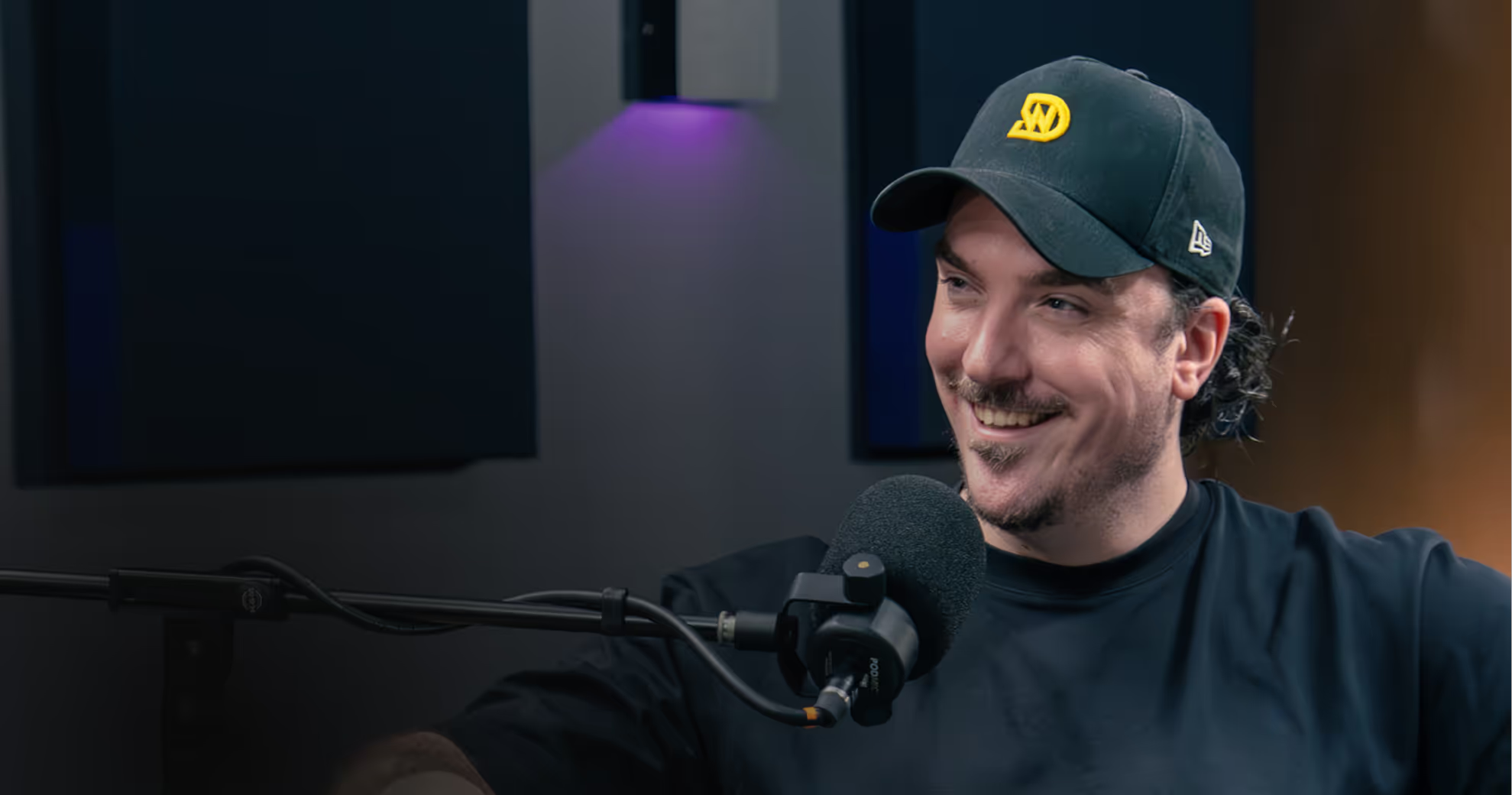
Work With Me
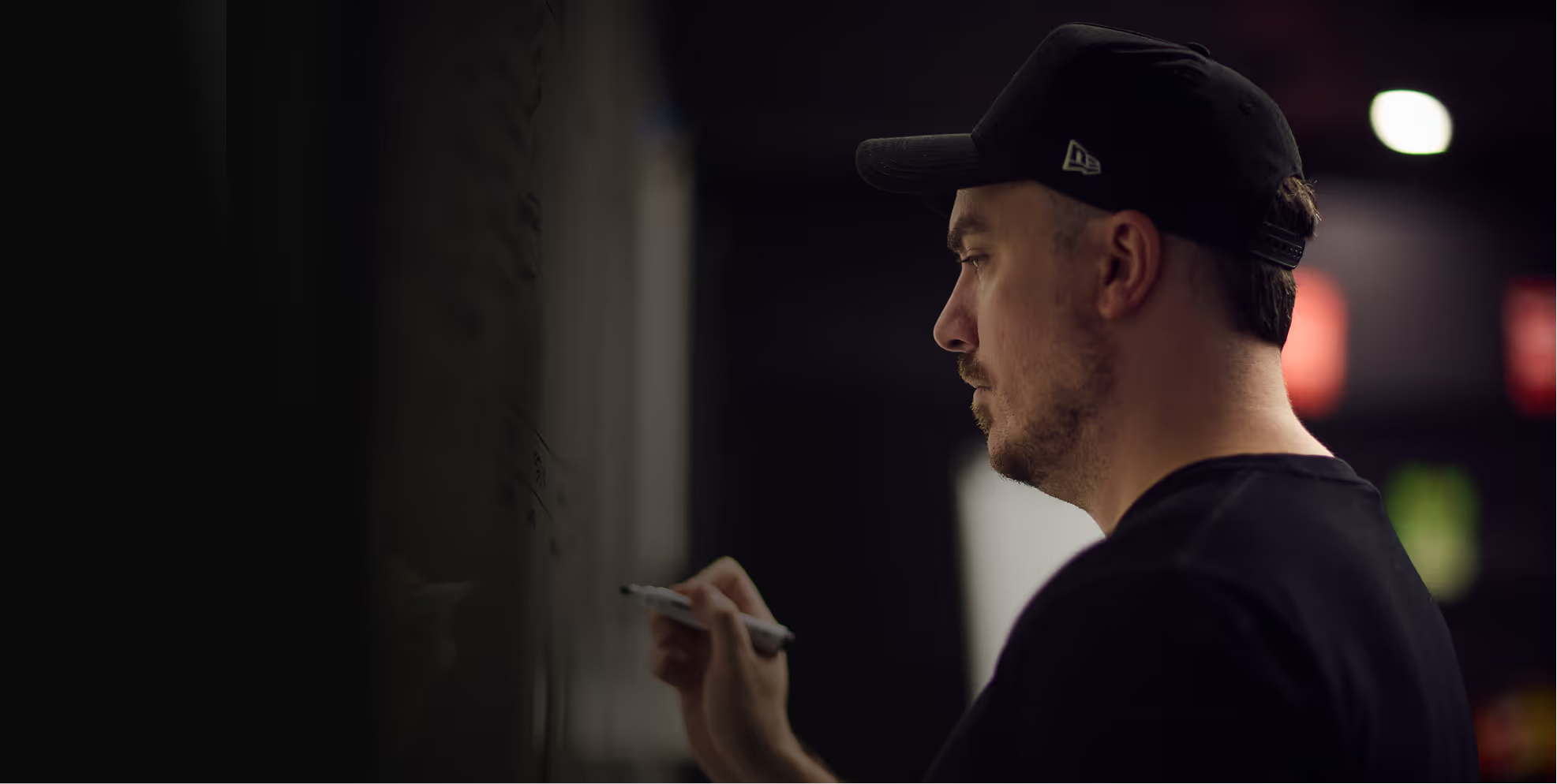
Enquire With Dain’s Team
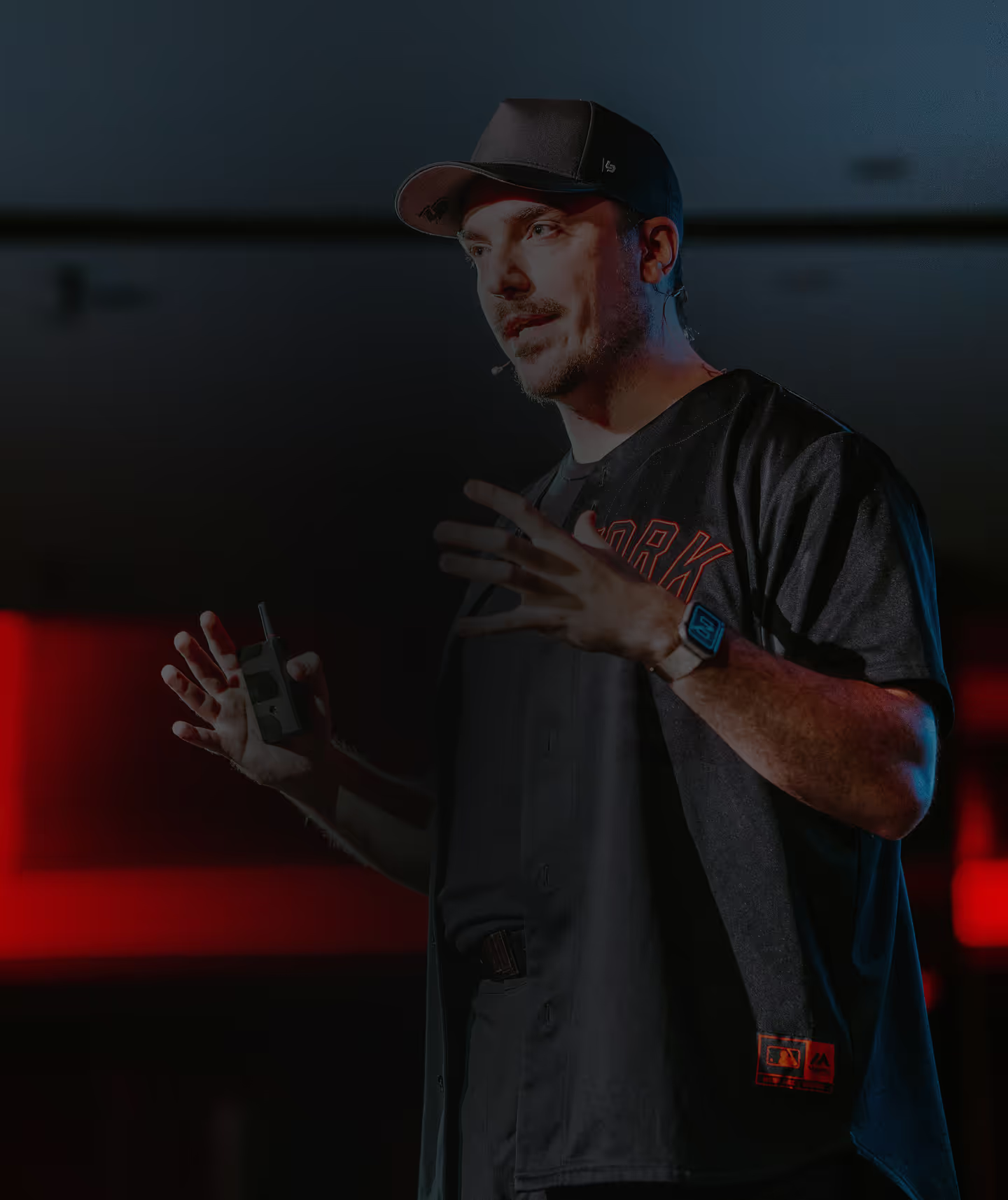
Enquire For Speaking

Let's Get You Branded
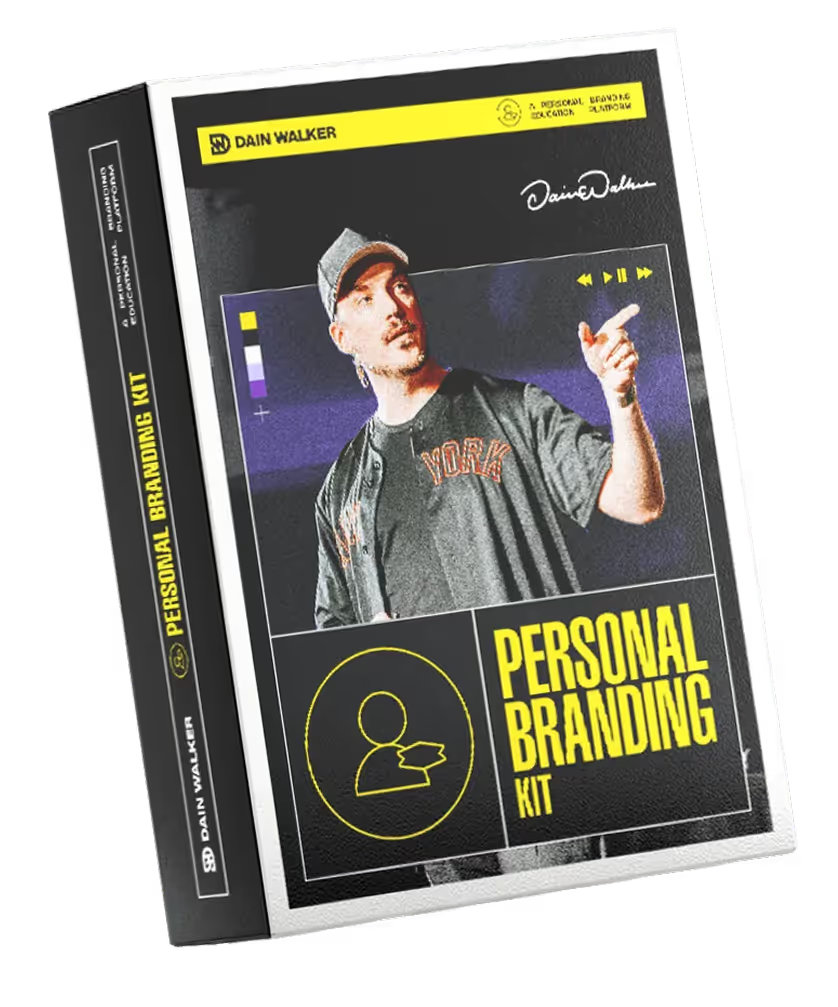
Apply to be a guest
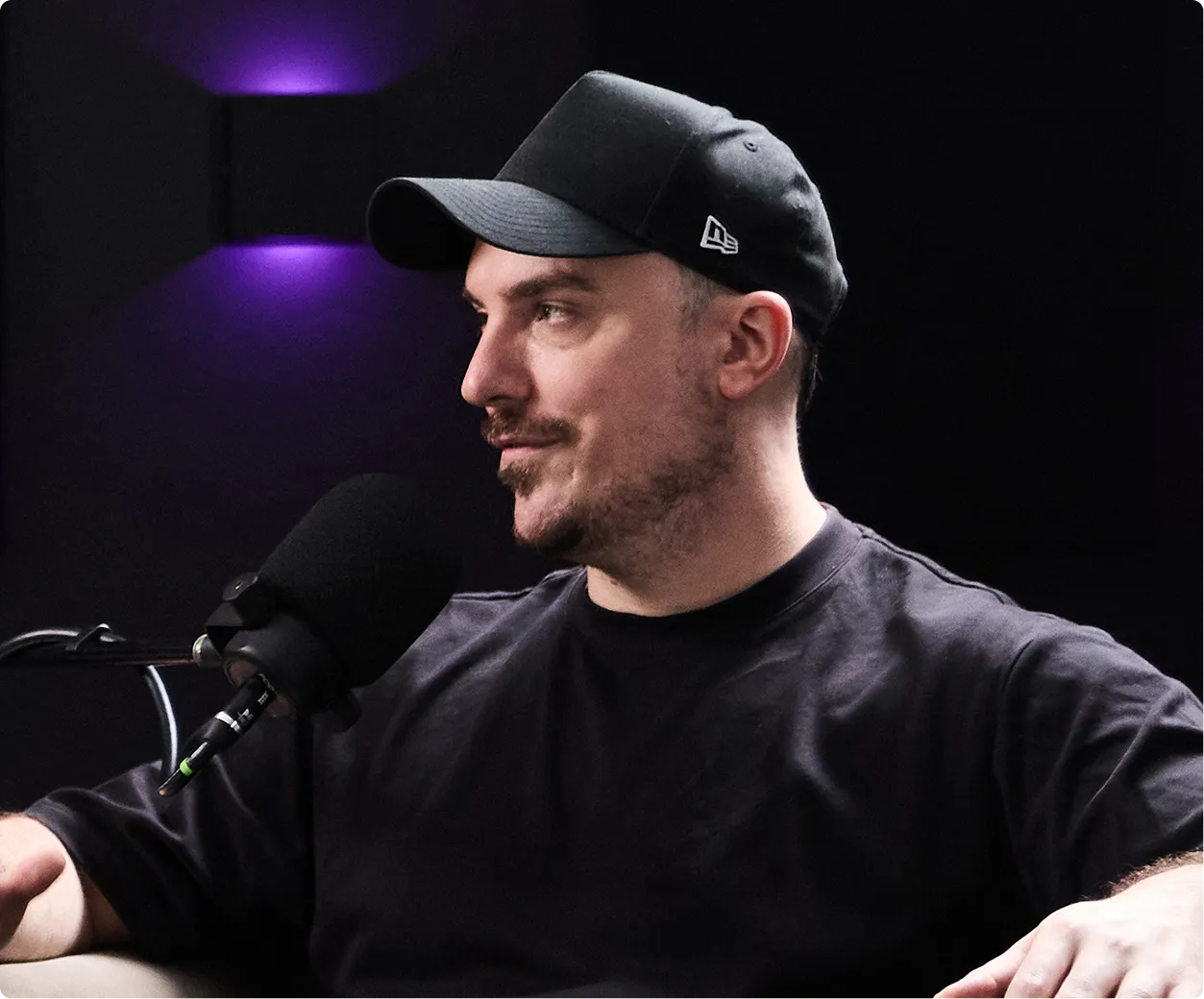
Dive into insights from industry leaders and experts.
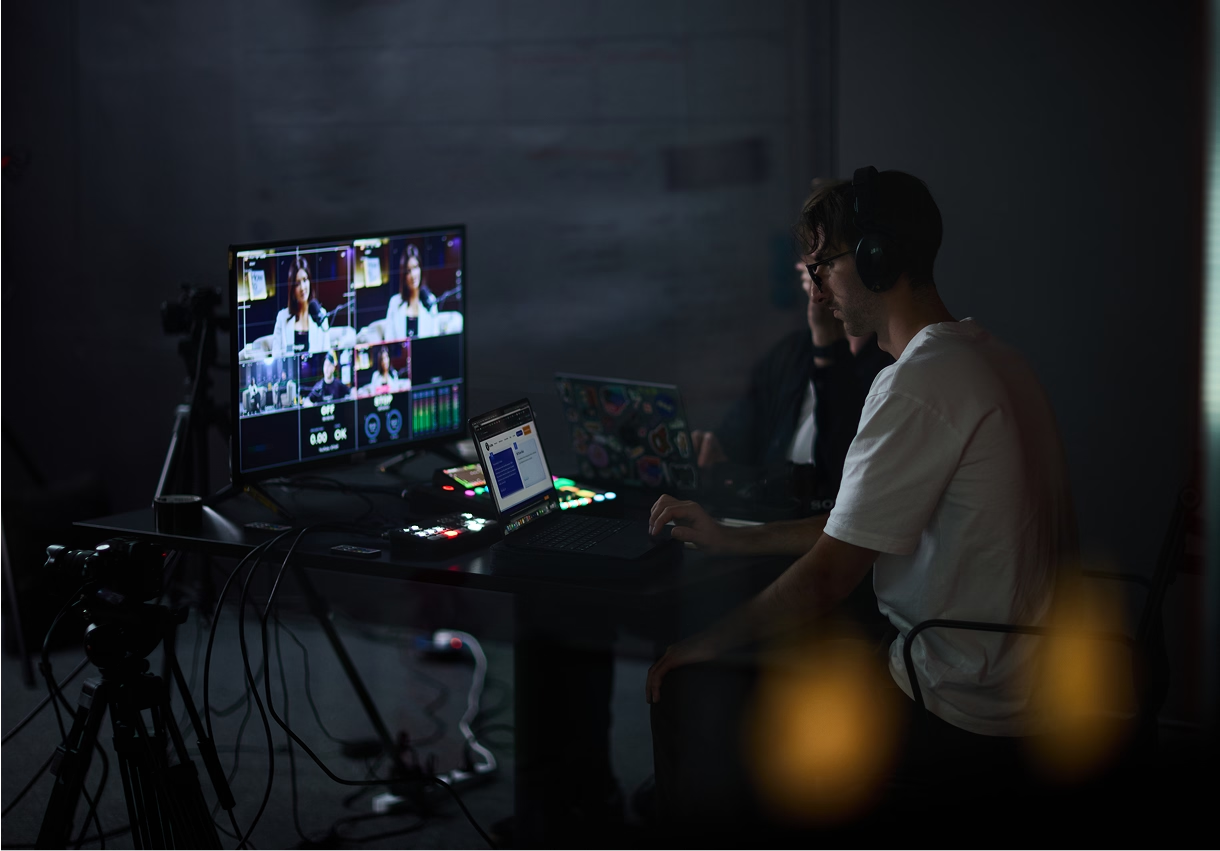
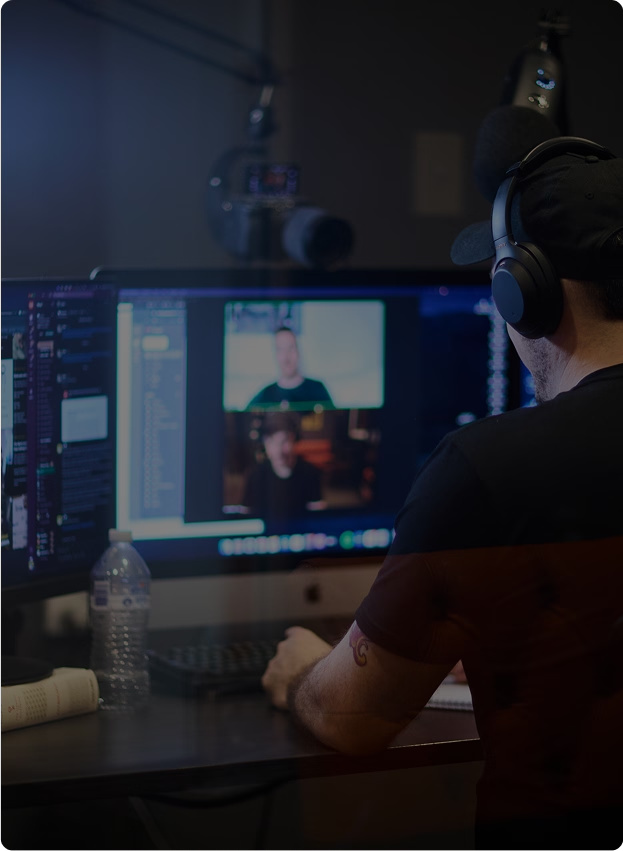
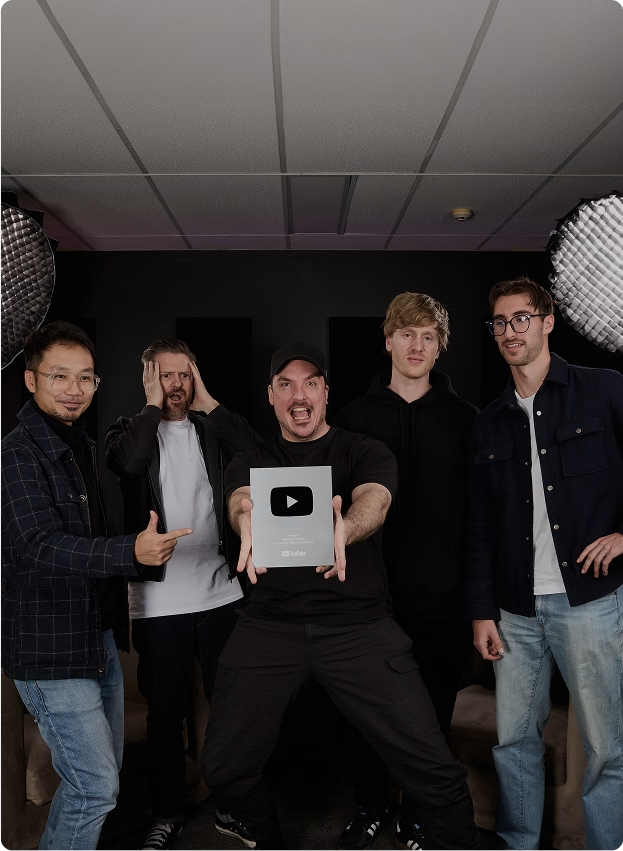
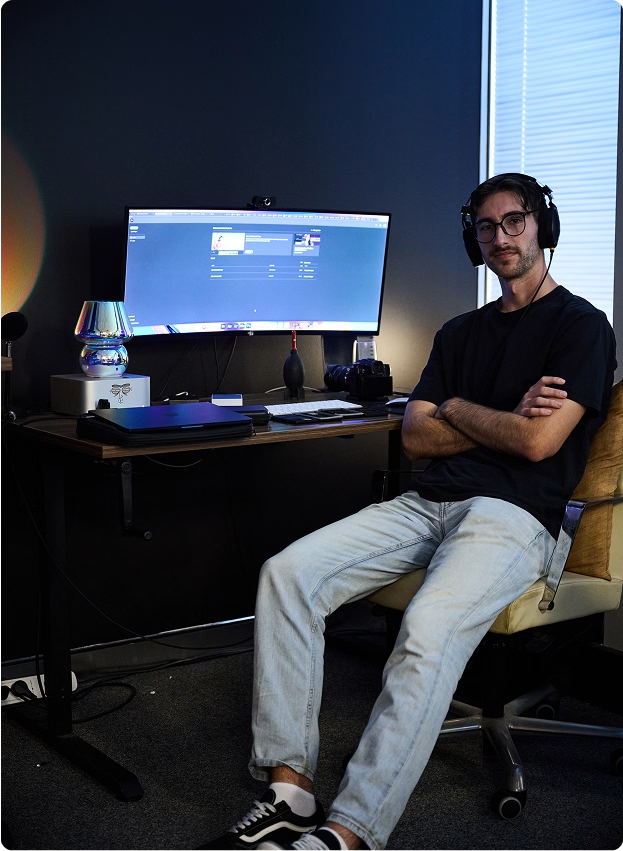
Stream now
Dive into expert advice and industry trends.
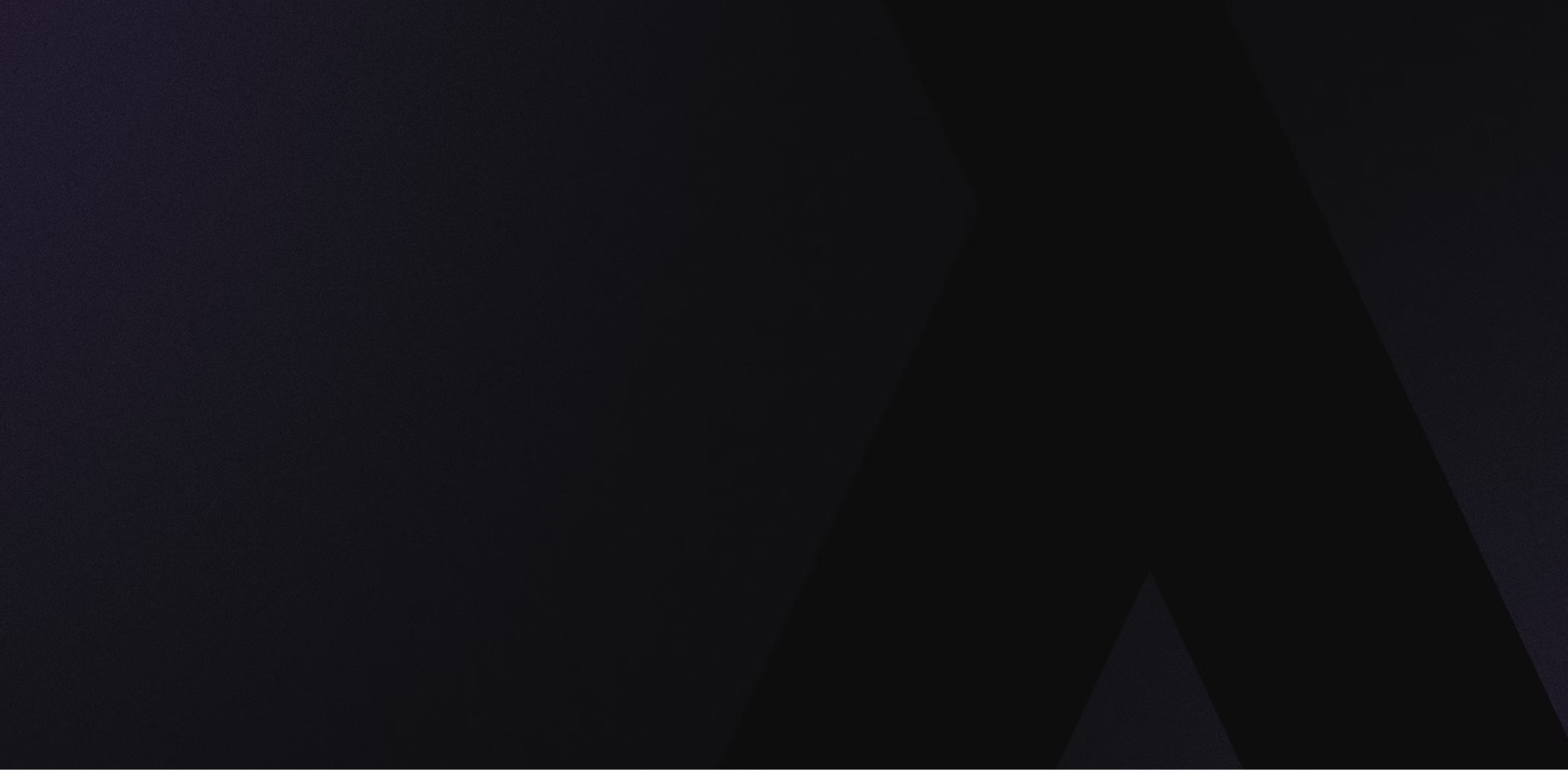

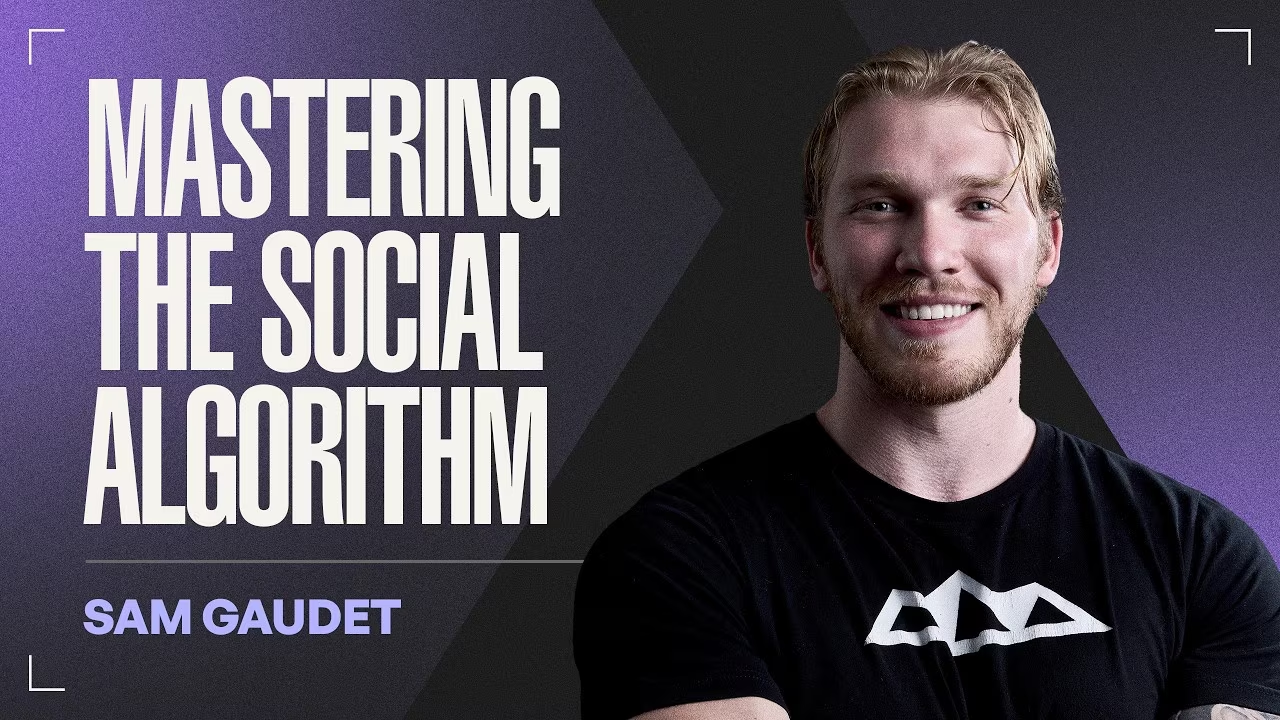
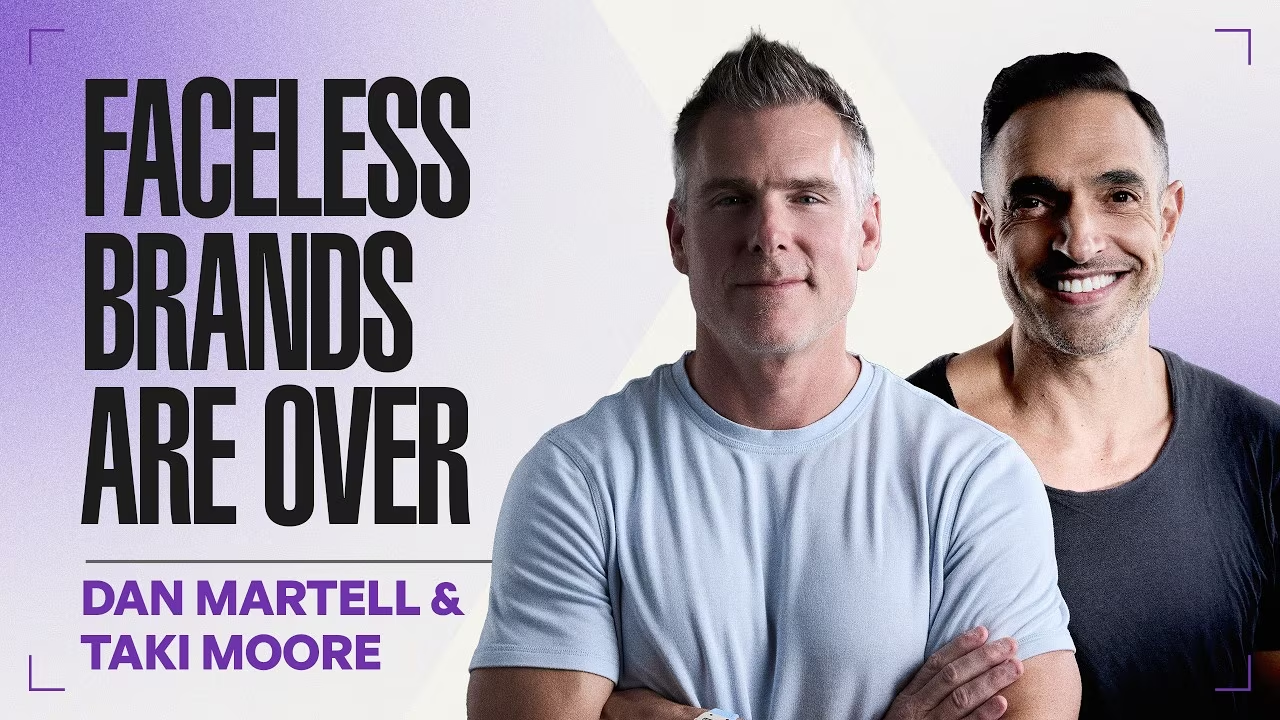
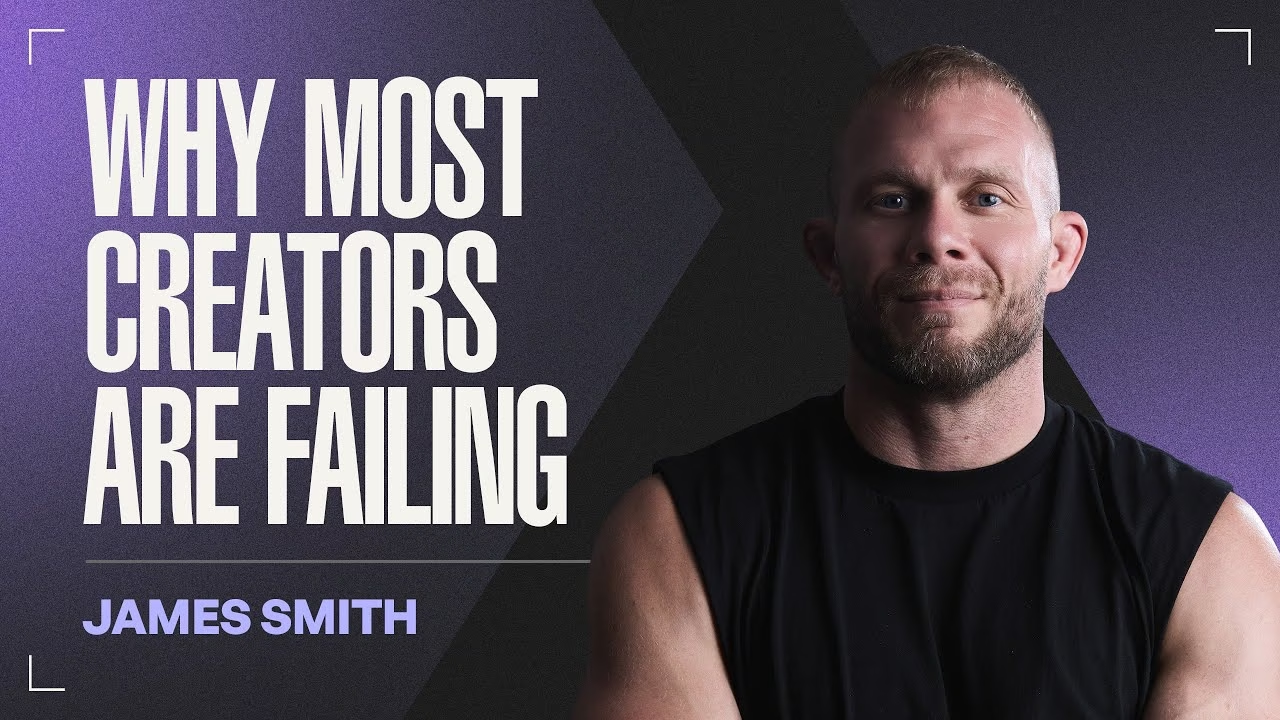
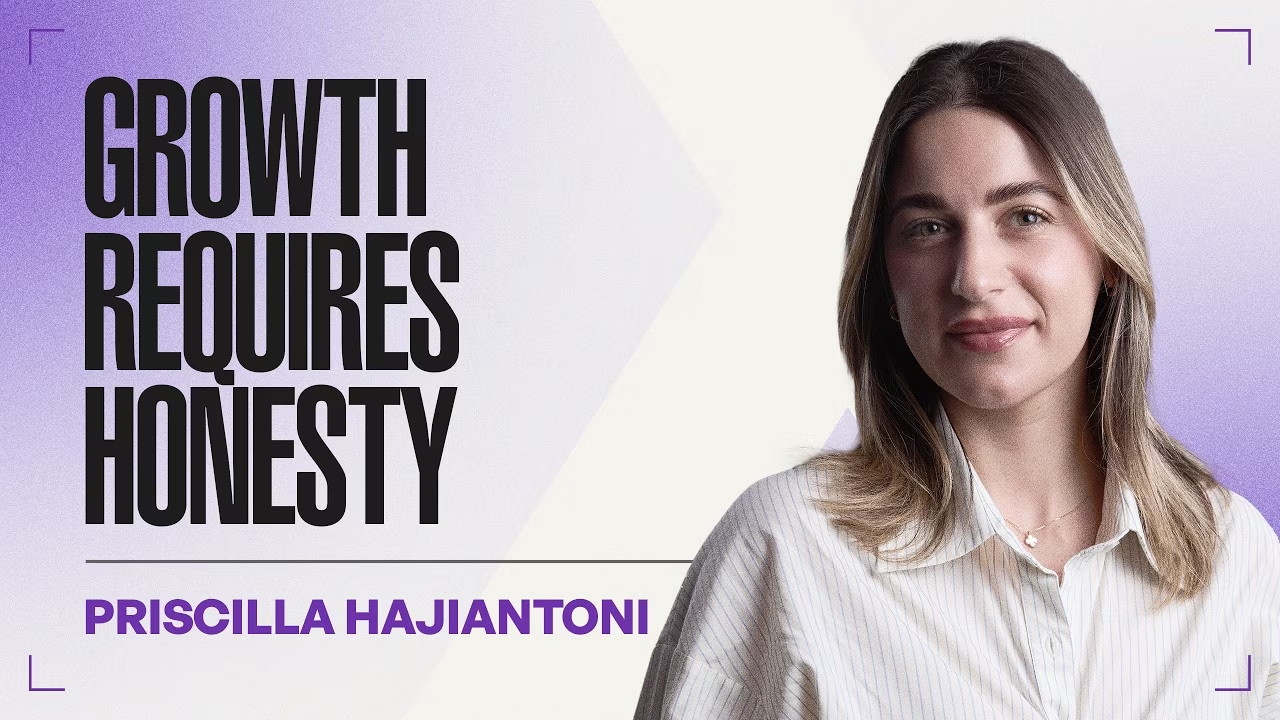
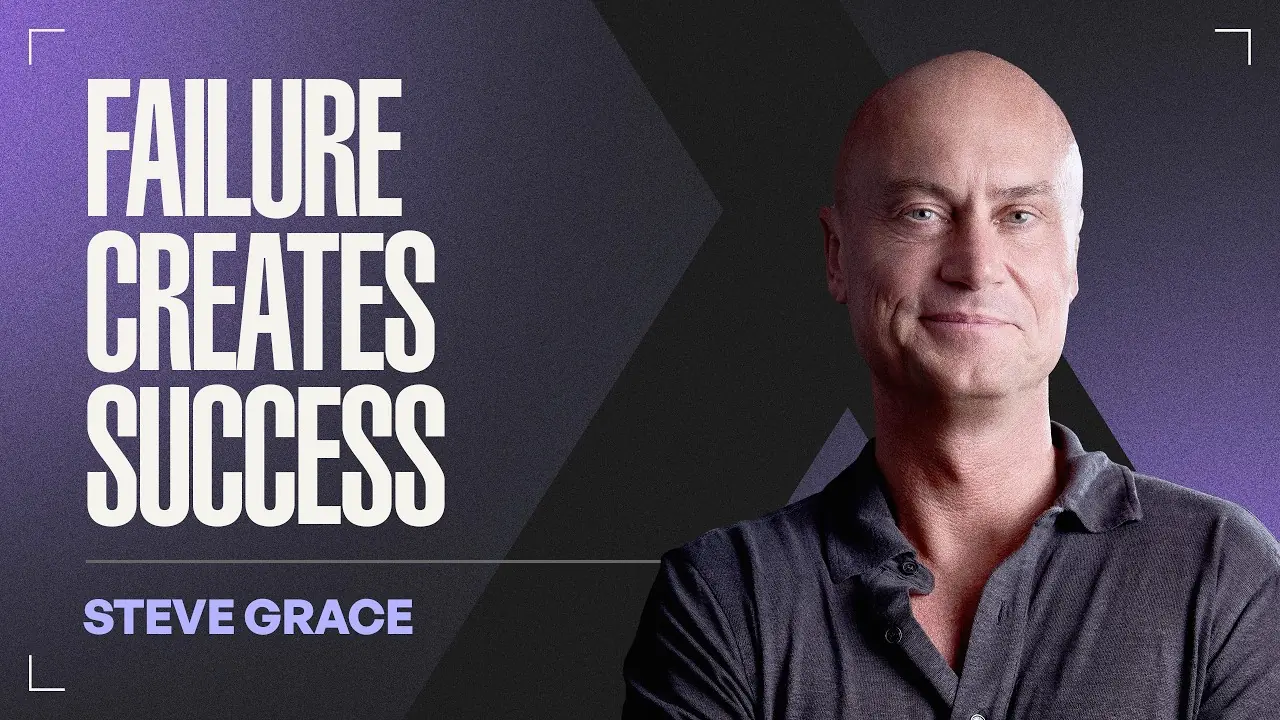
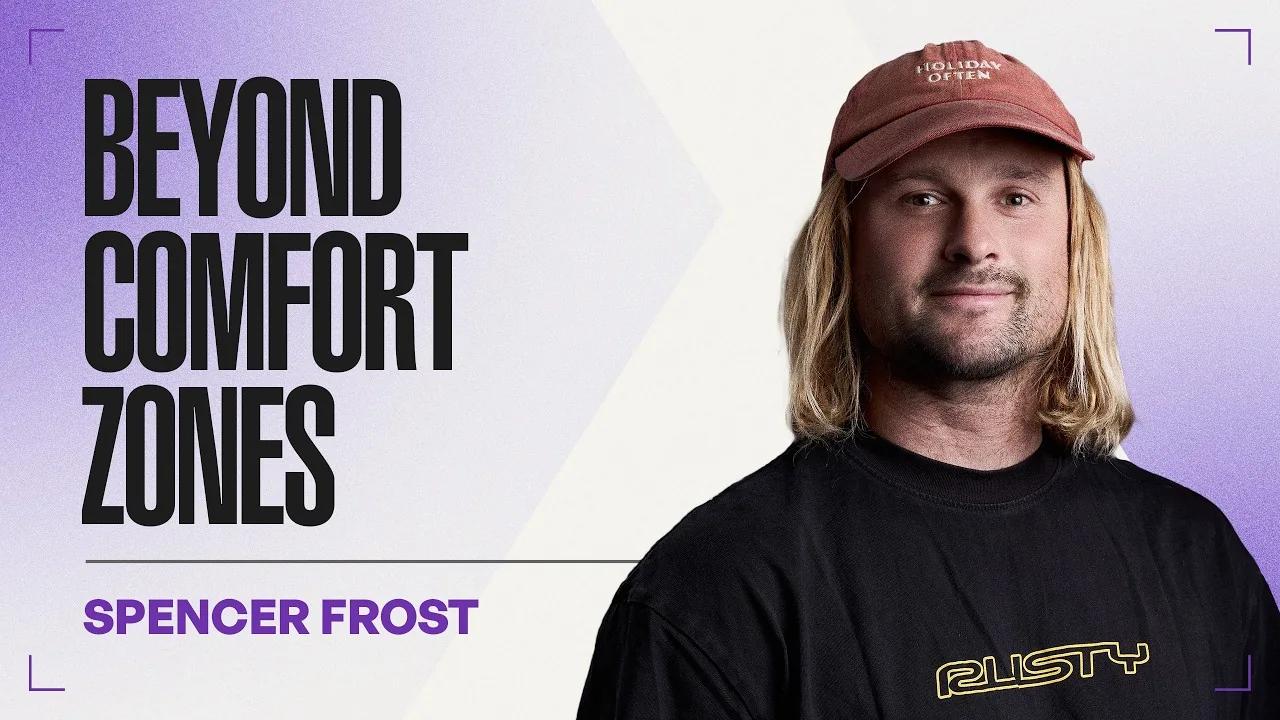
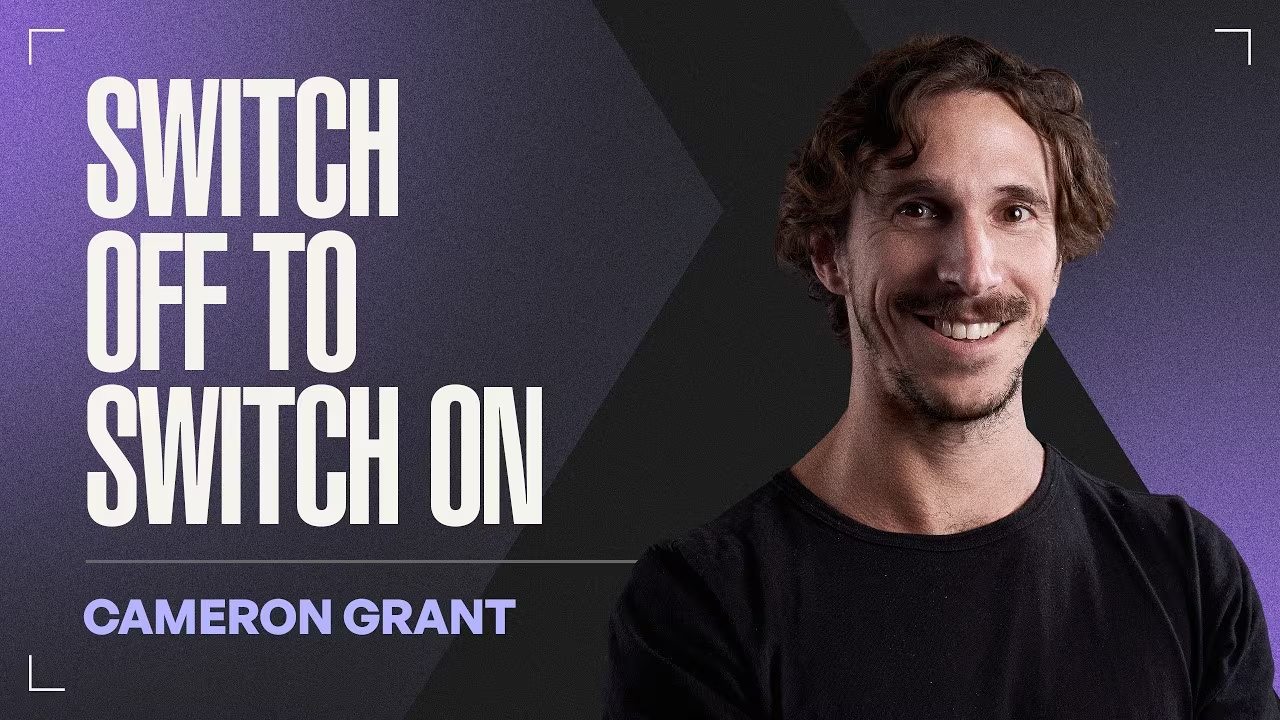
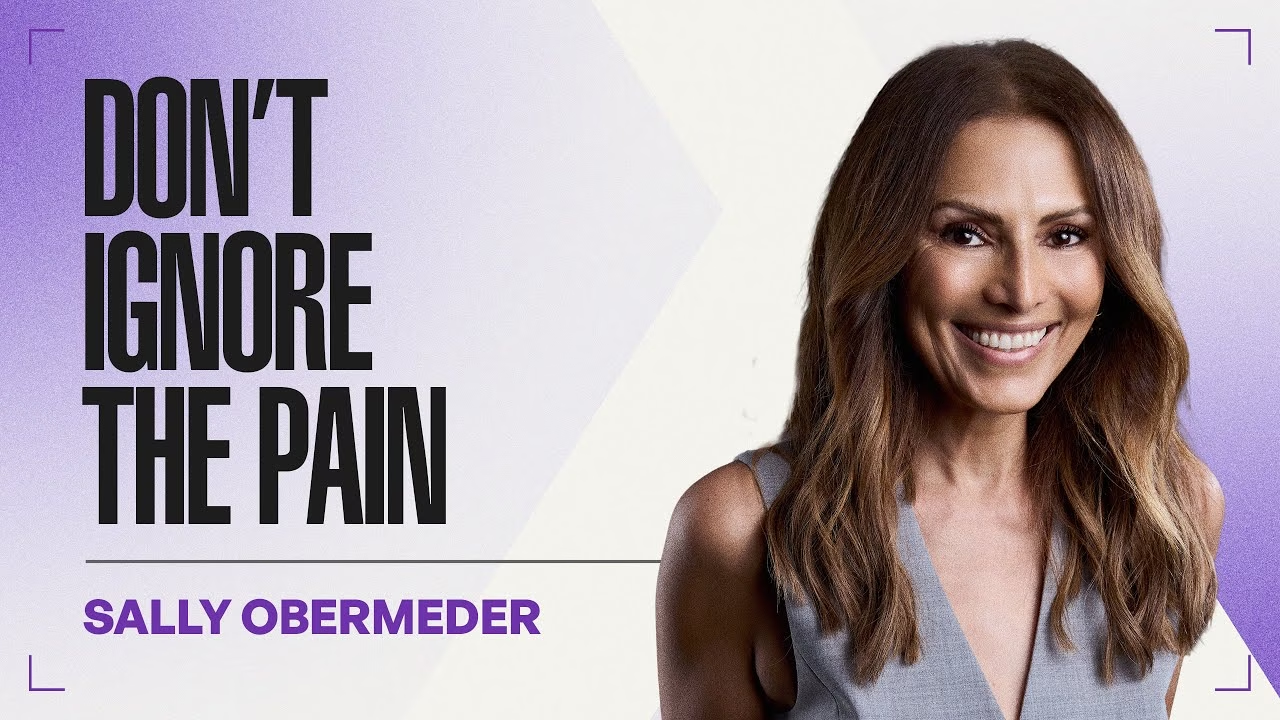
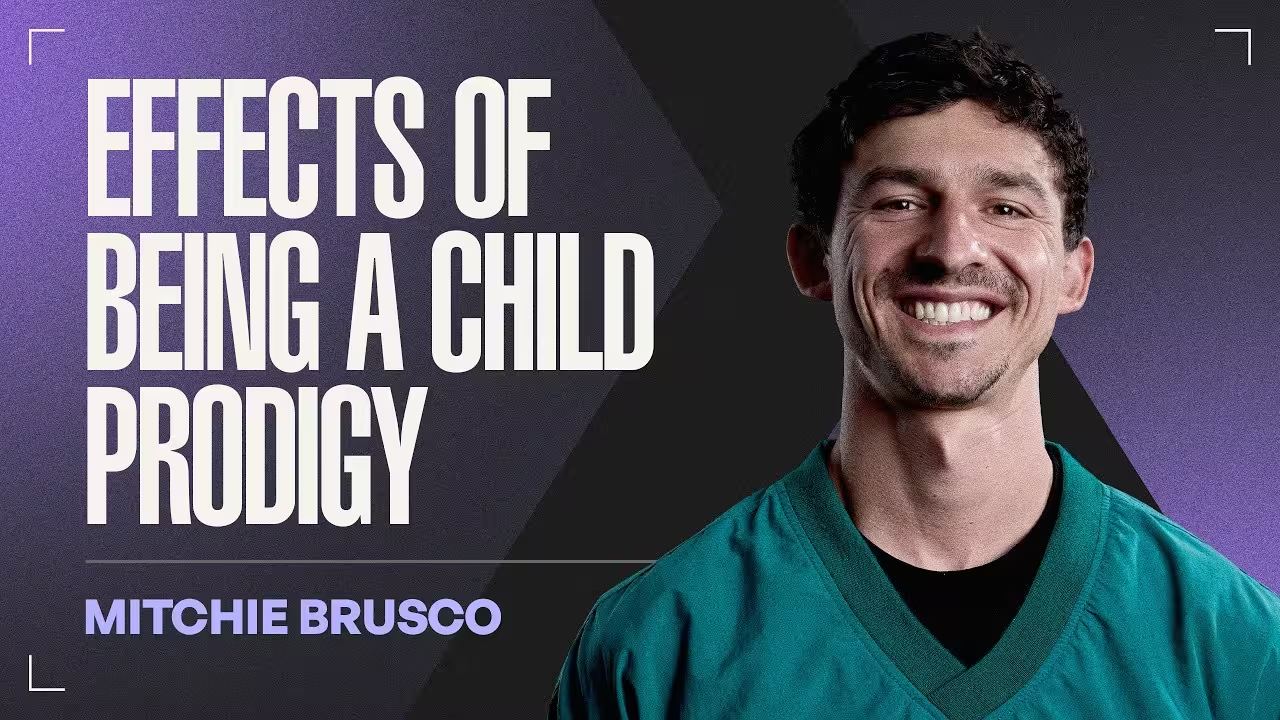
.avif)
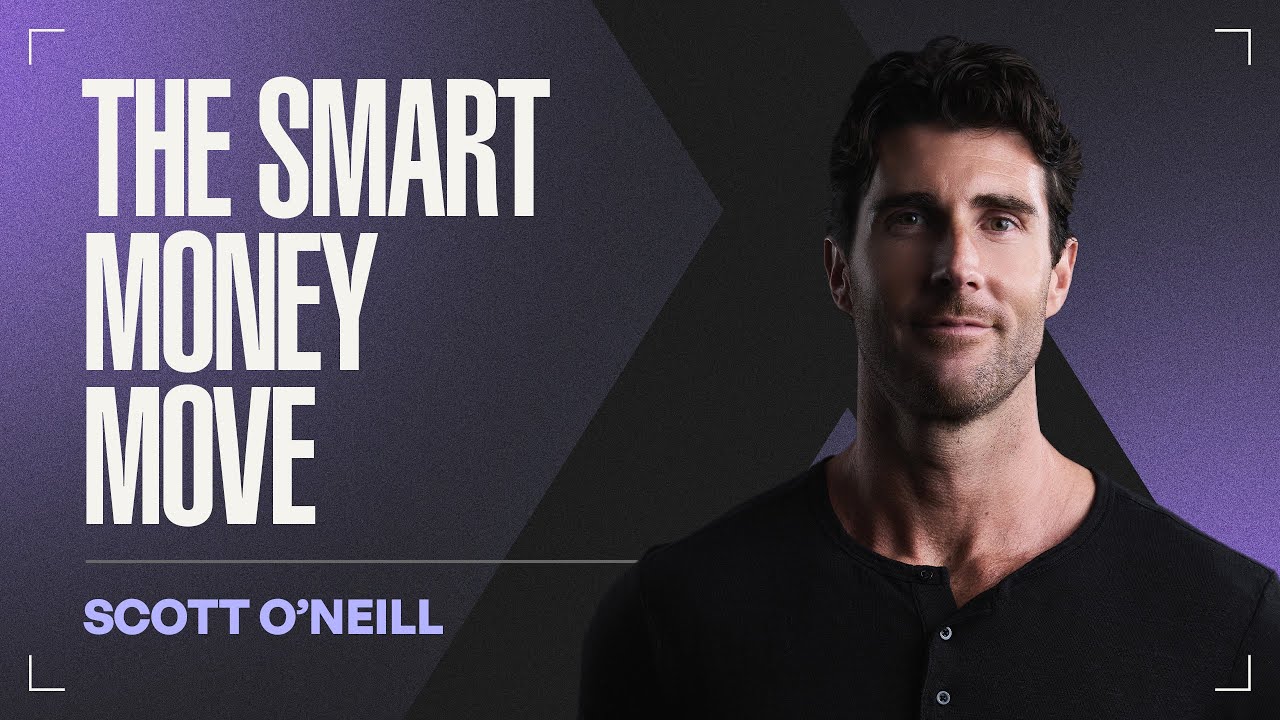
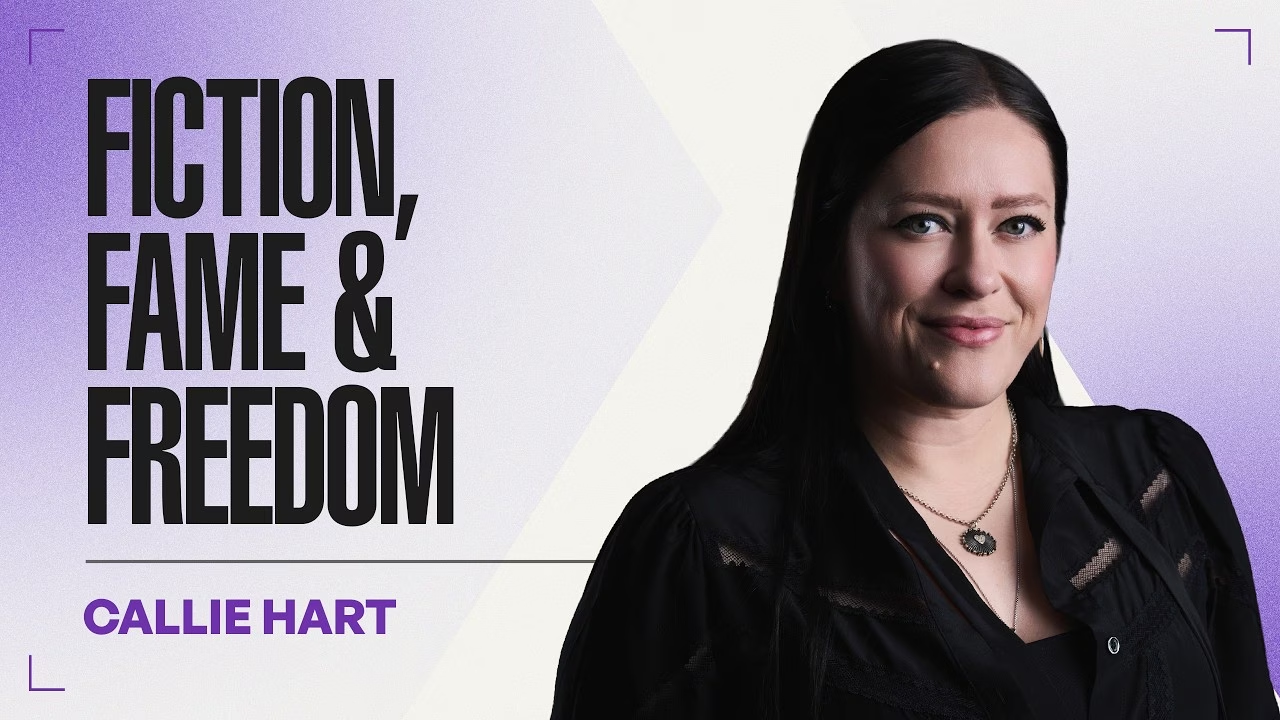

.avif)
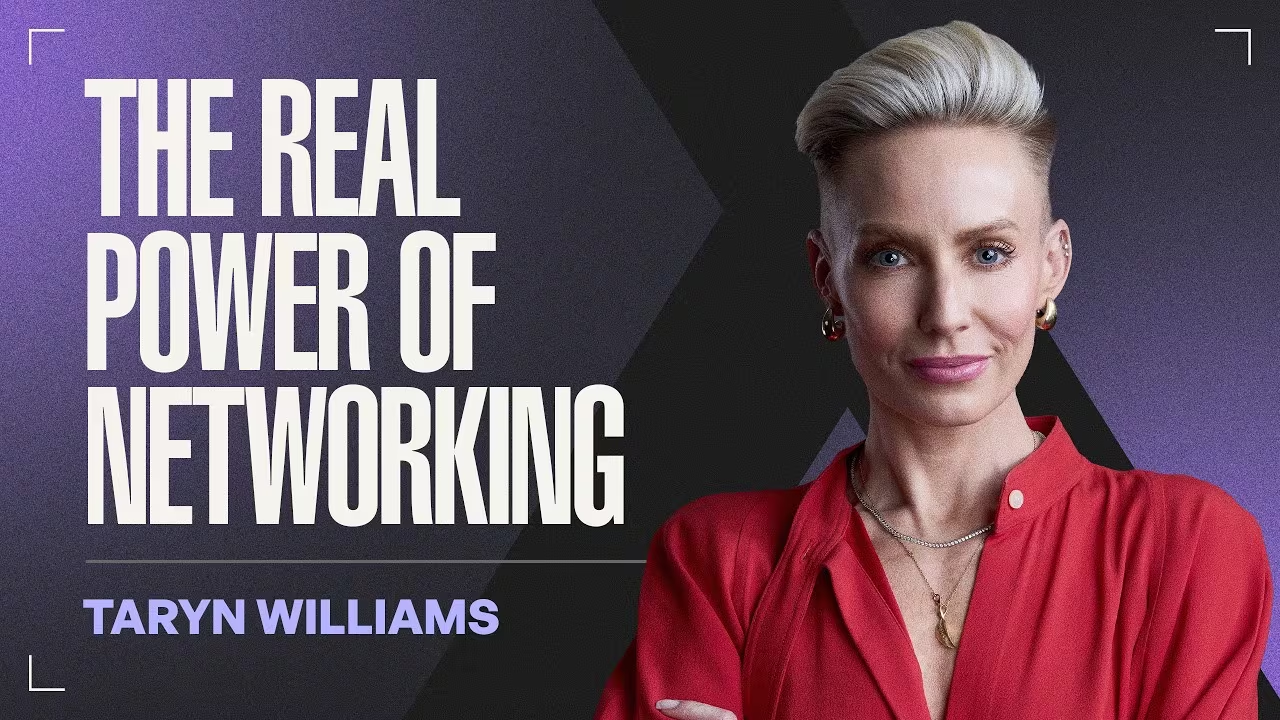

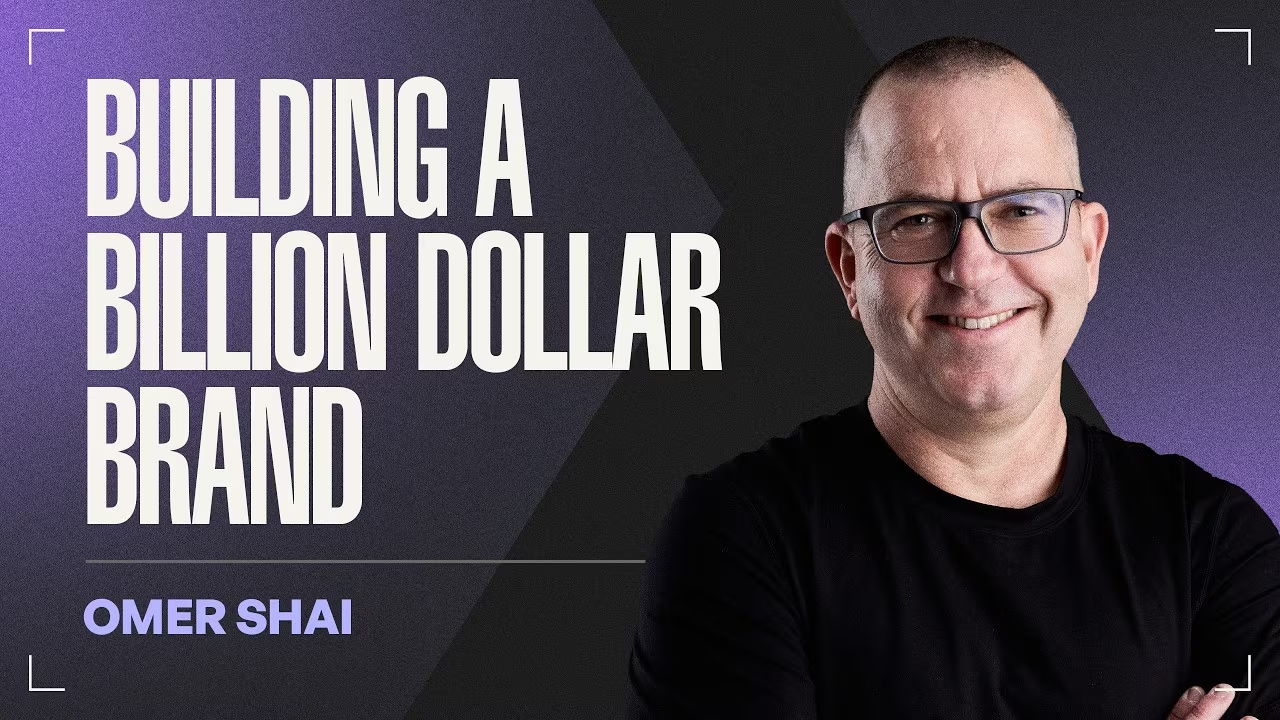
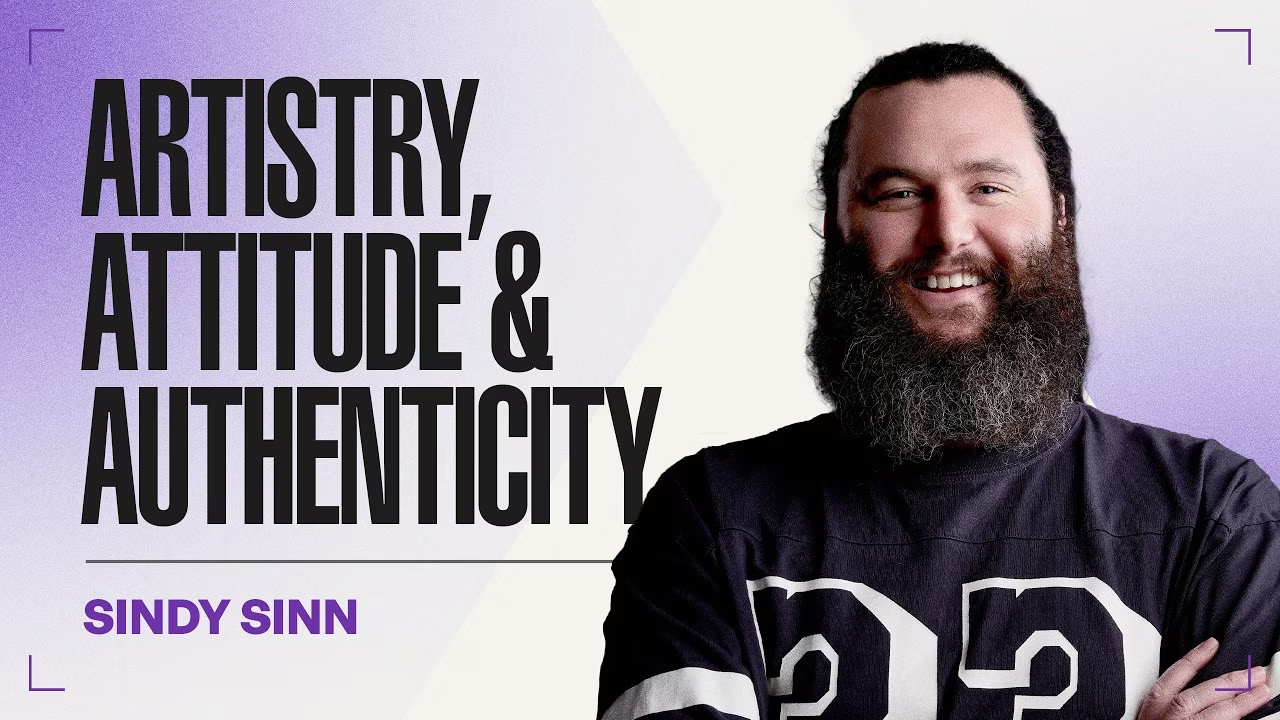
%20(1).avif)
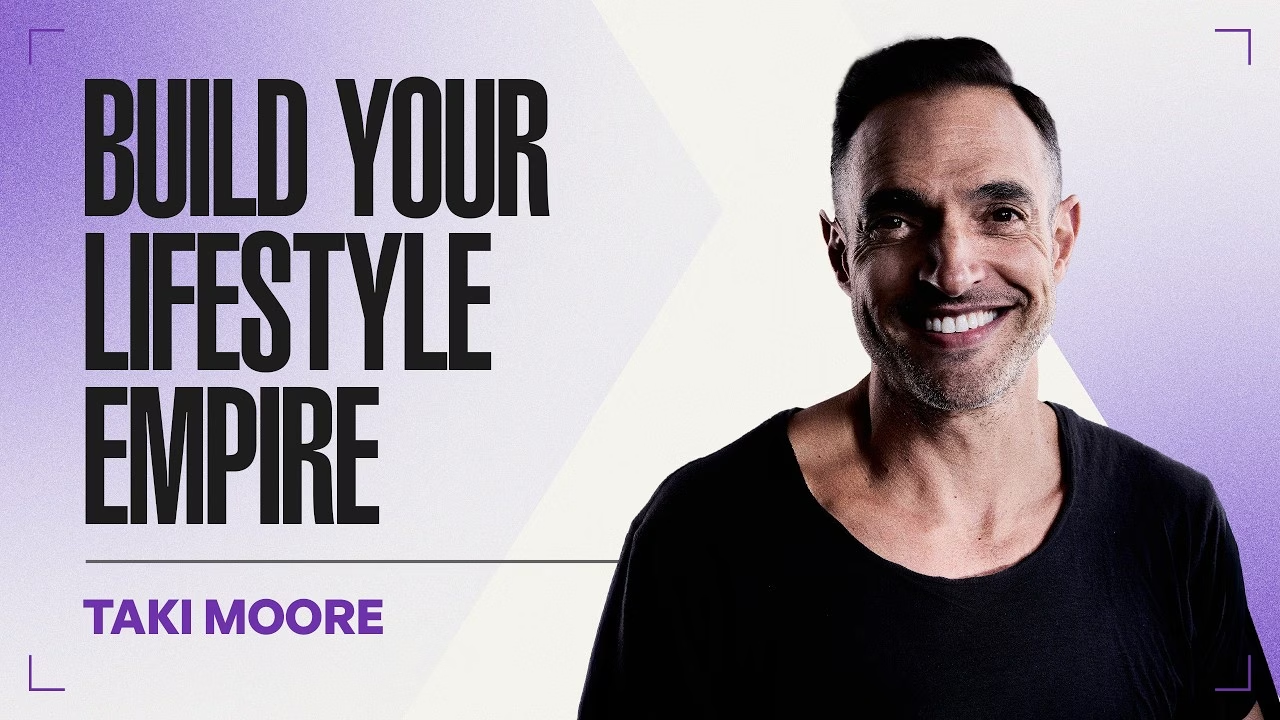
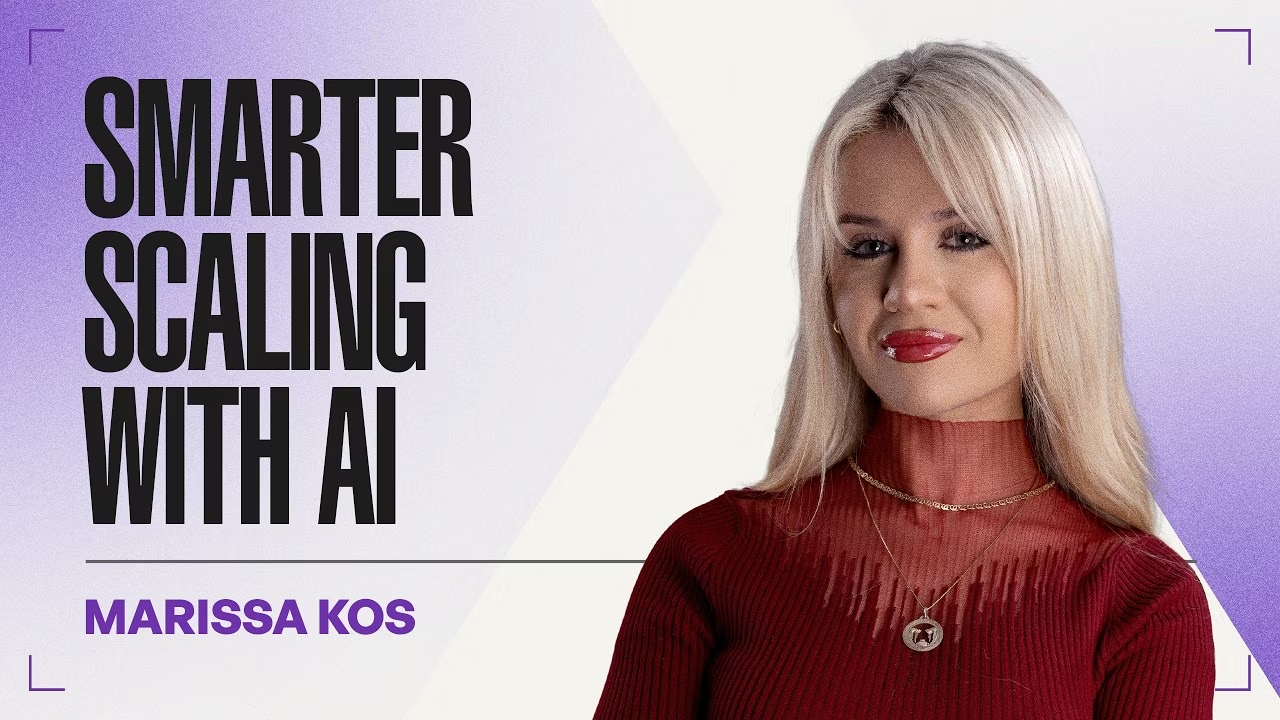
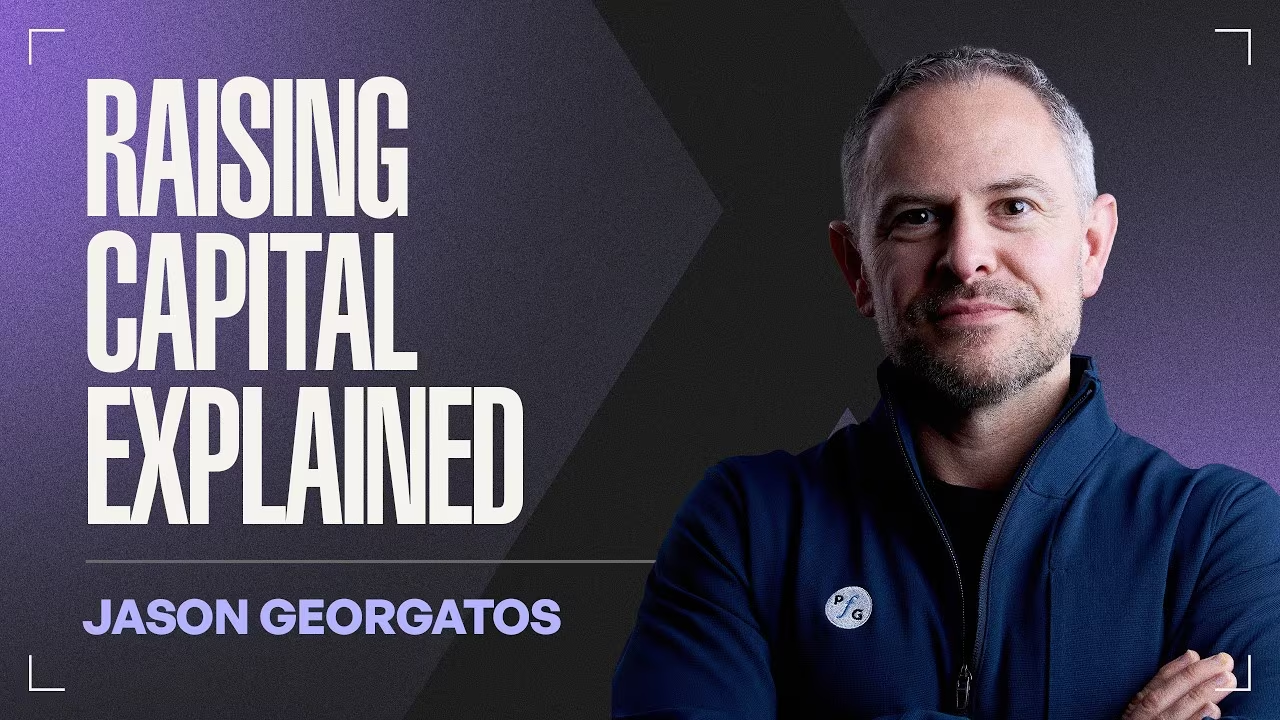
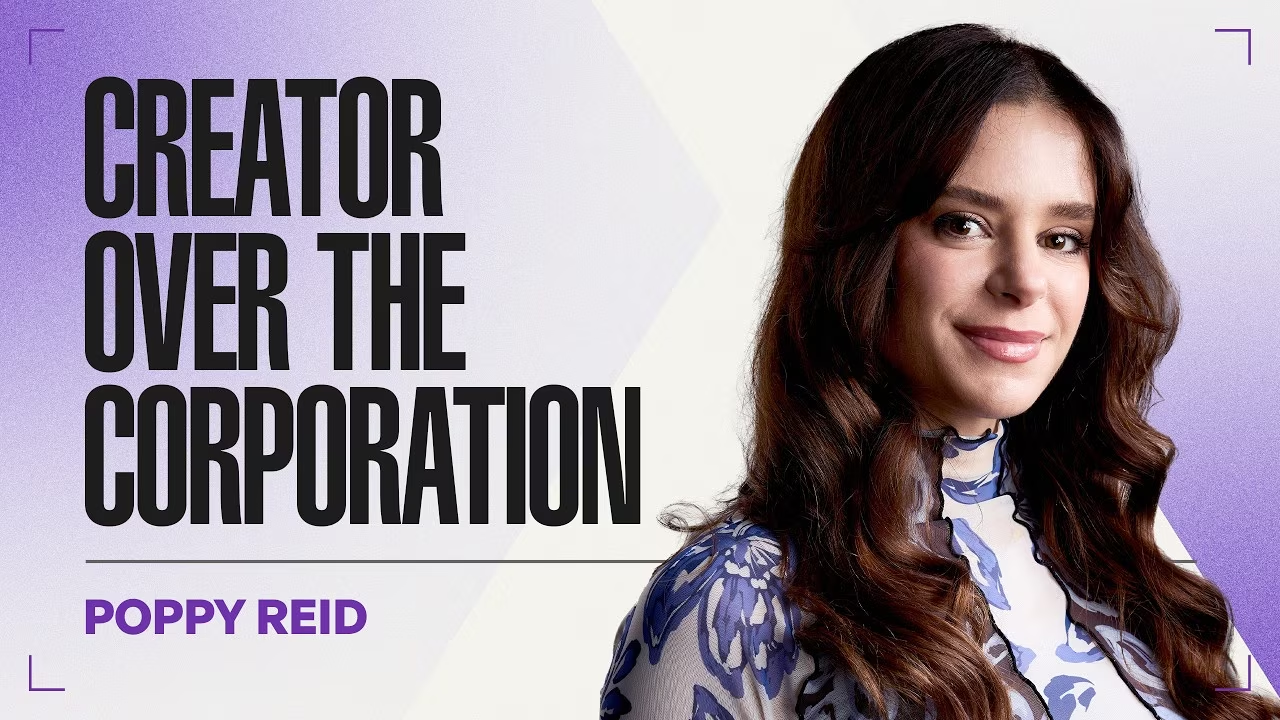
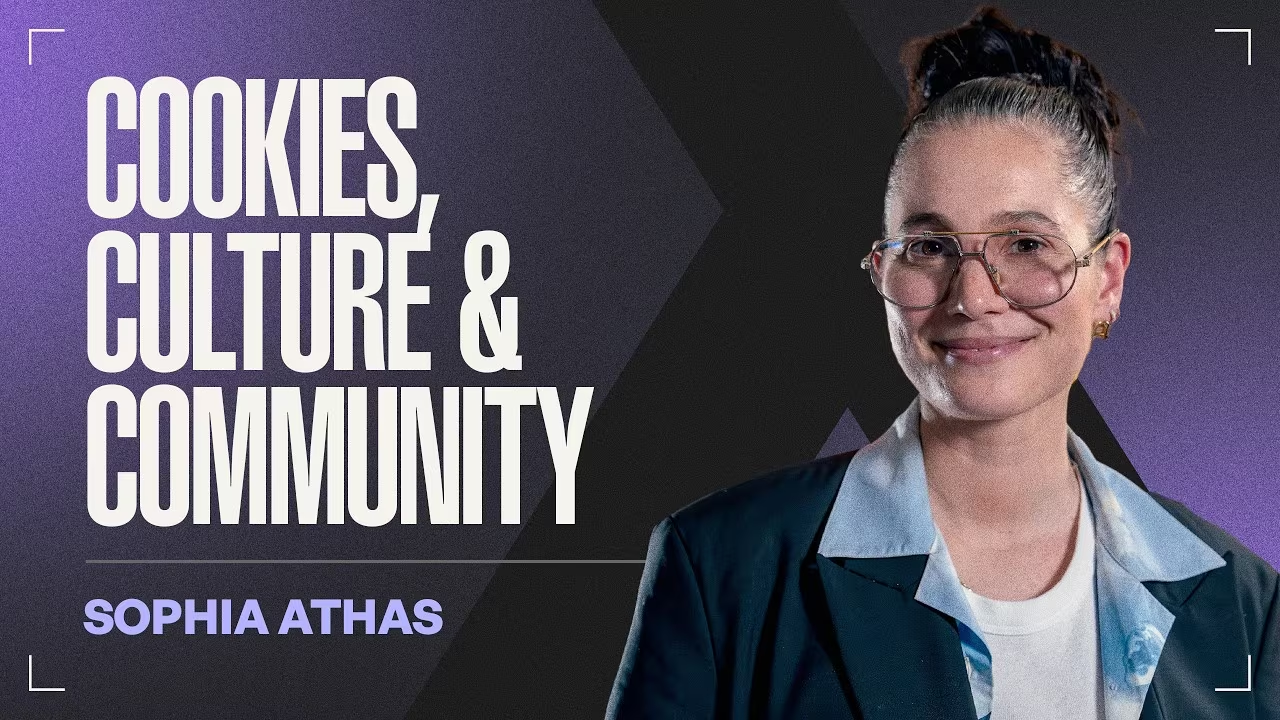

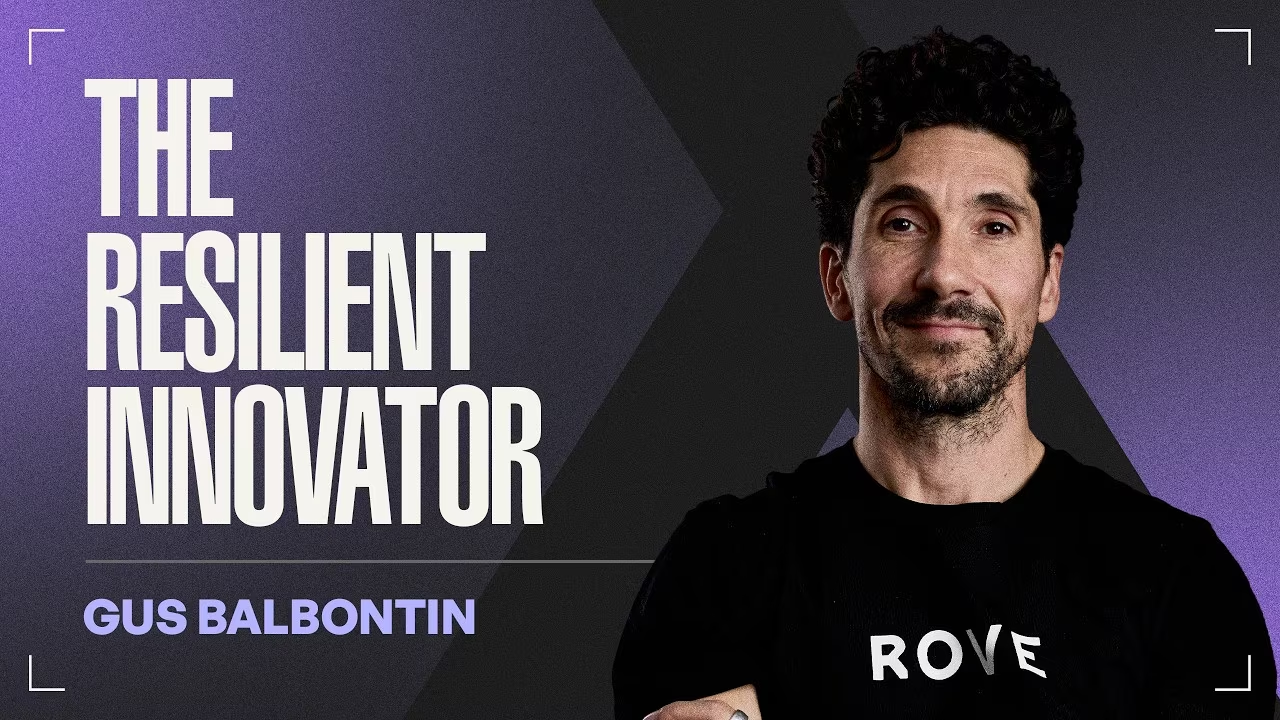
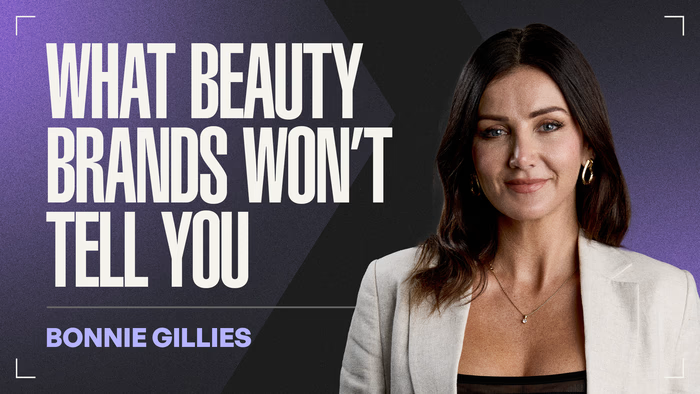


.avif)

